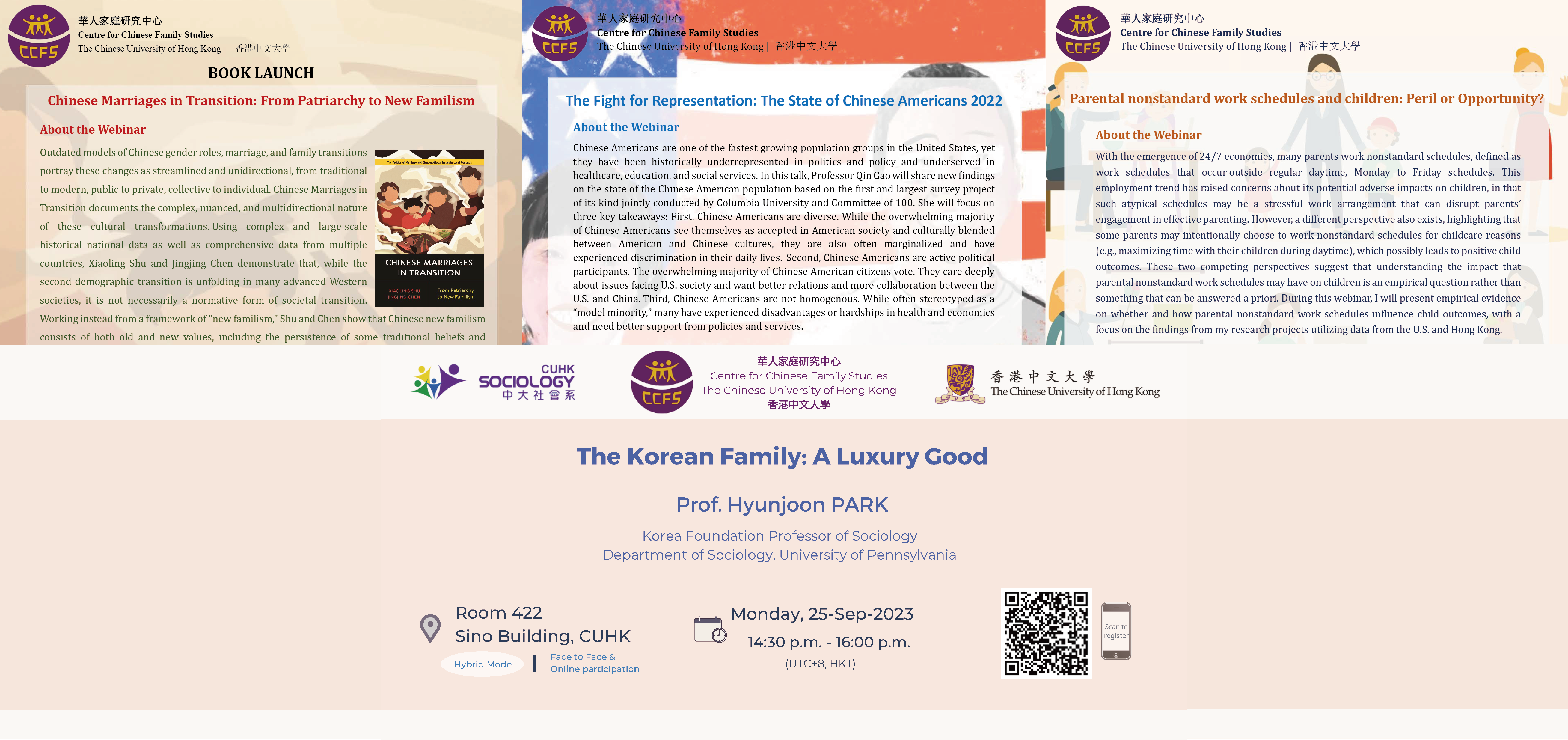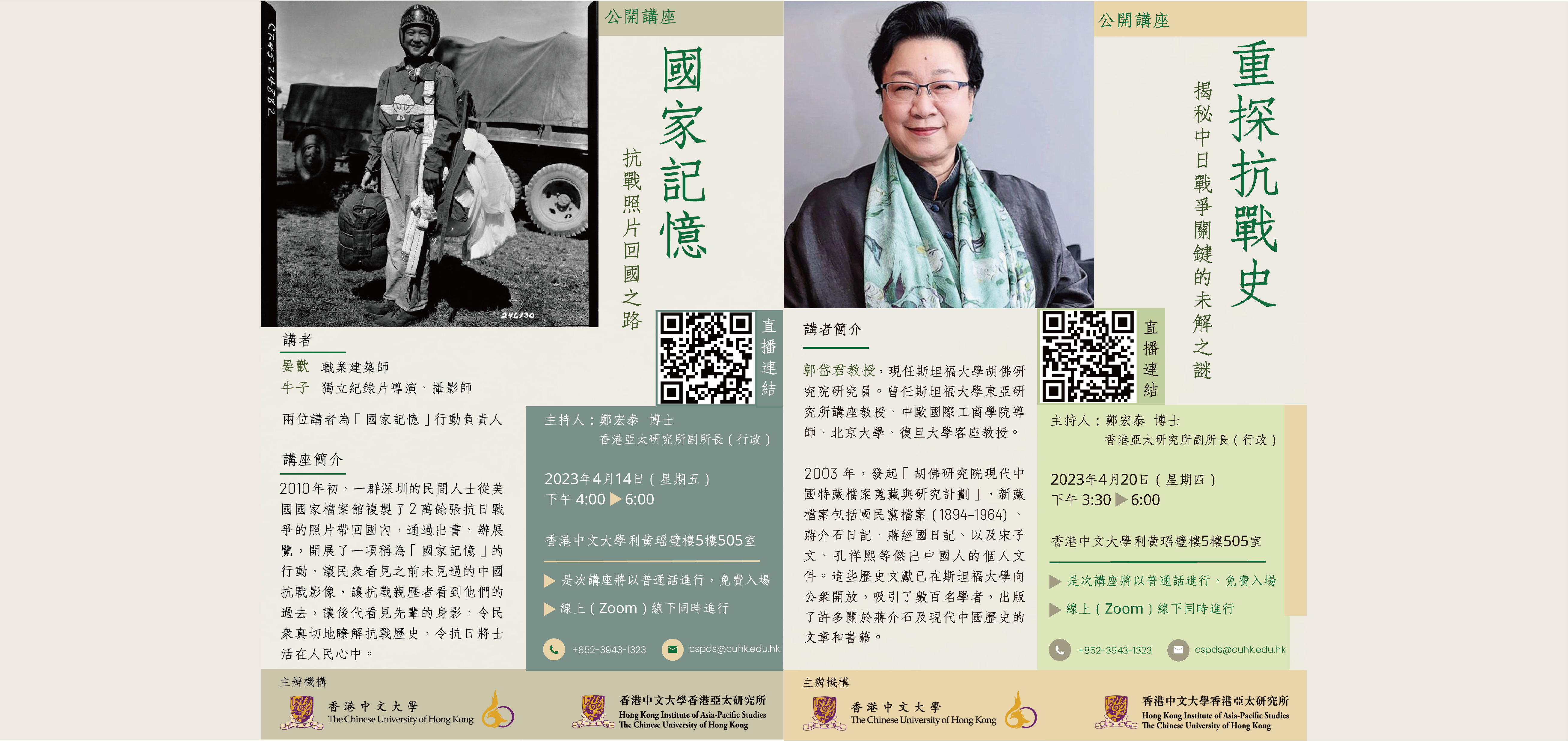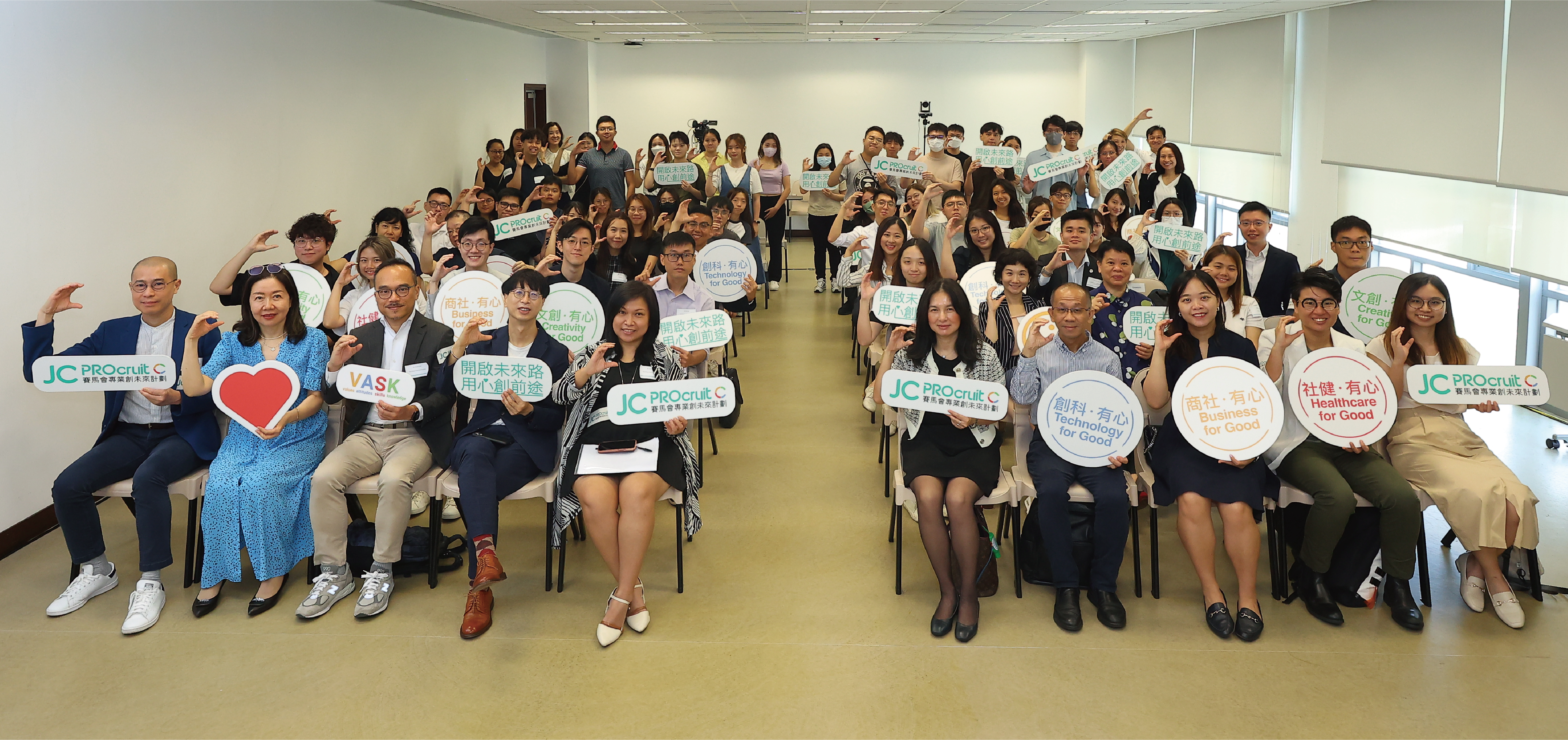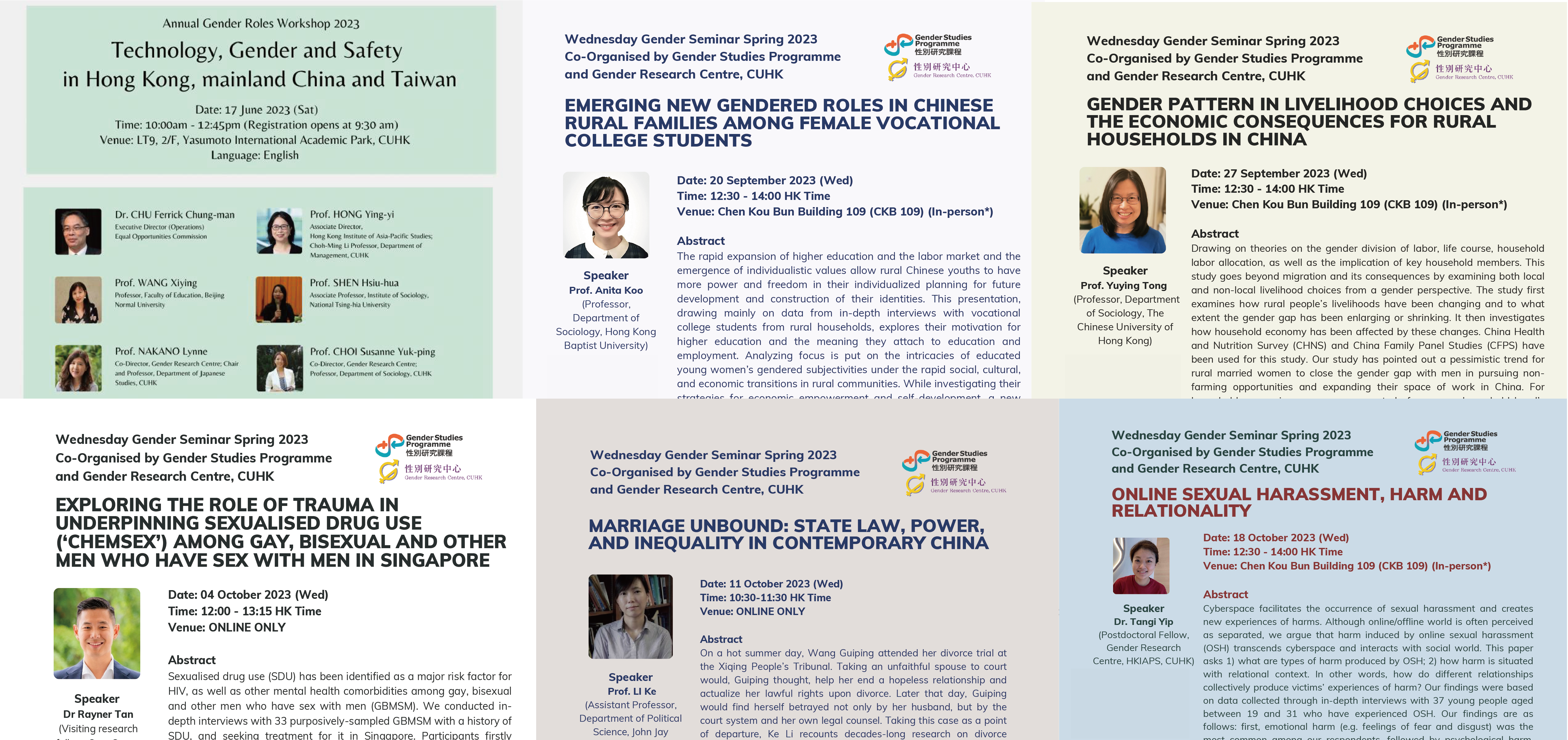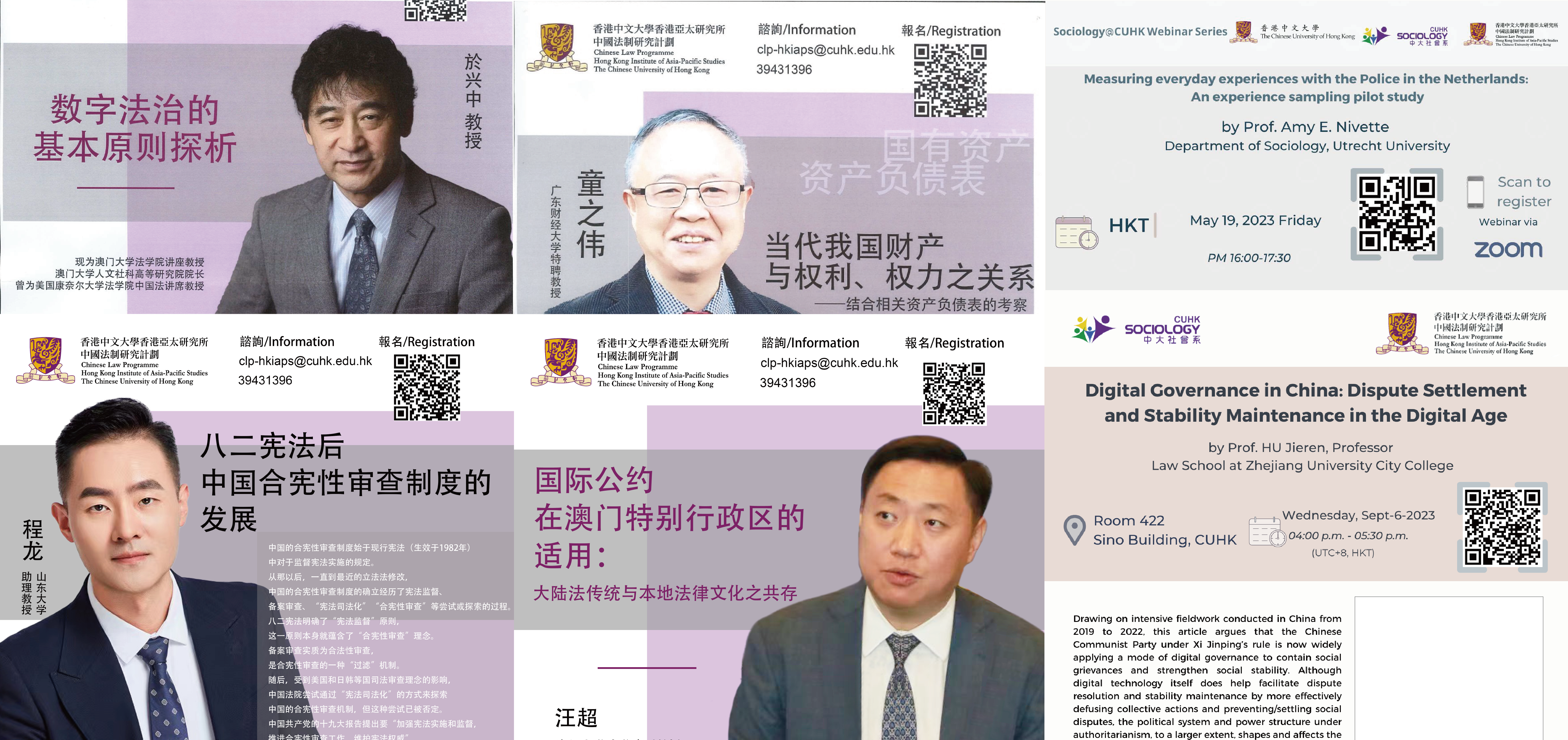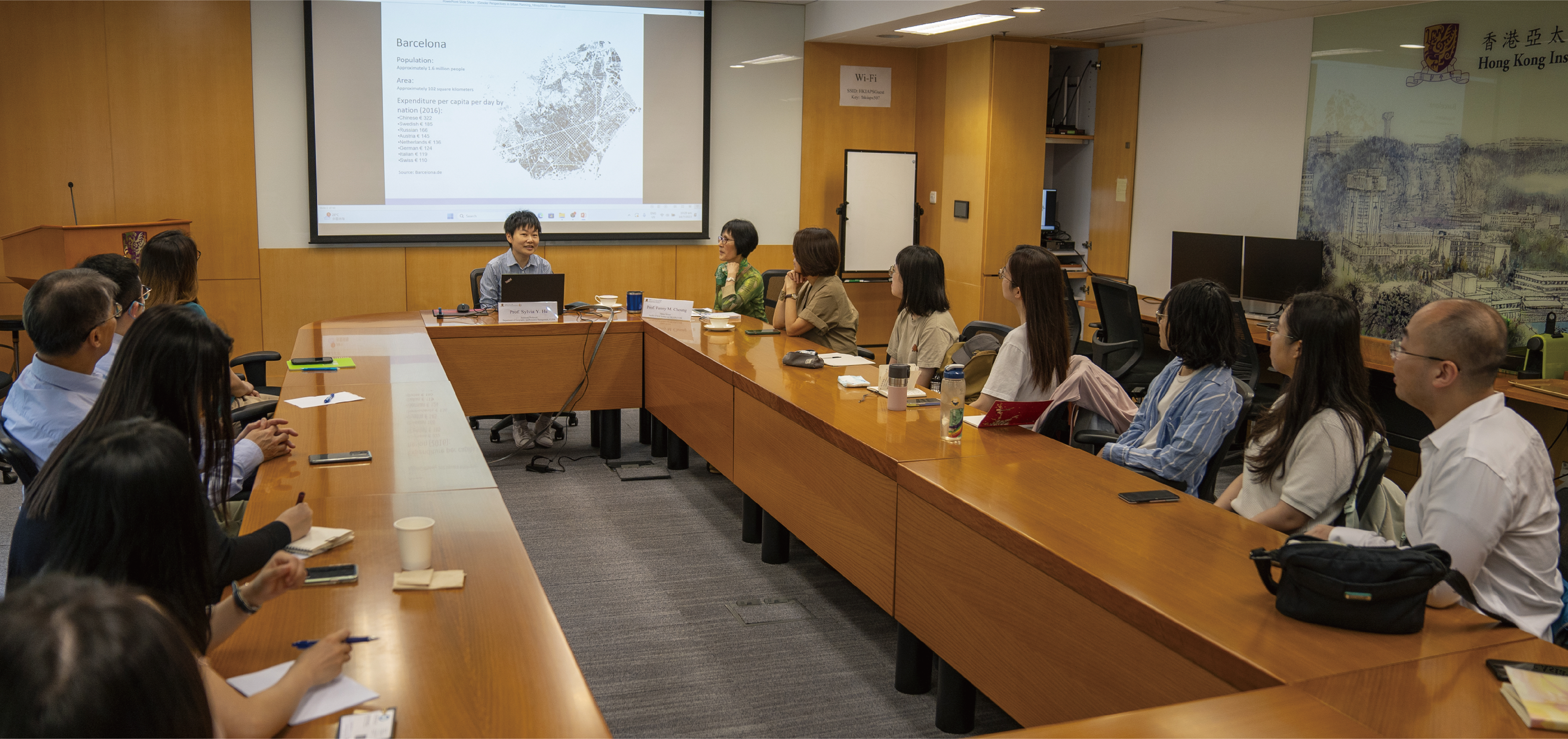
|
| Seminars |
|
|
| Centre for Chinese Family Studies |
Centre for Social and Political Development Studies | Centre for Youth Studies |
| Gender Research Centre | Chinese Law Programme | Policy Research @ HKIAPS |
|
Centre for Chinese Family Studies
Chinese Marriages in Transition: From Patriarchy to New Familism 09:30–11:00 | 11 May 2023 | Online |
|
|
Speaker
Prof. Xiaoling Shu |
Professor, Department of Sociology, University of California, Davis, U.S.
|
|
Co-organizer
Department of Sociology, CUHK |
|
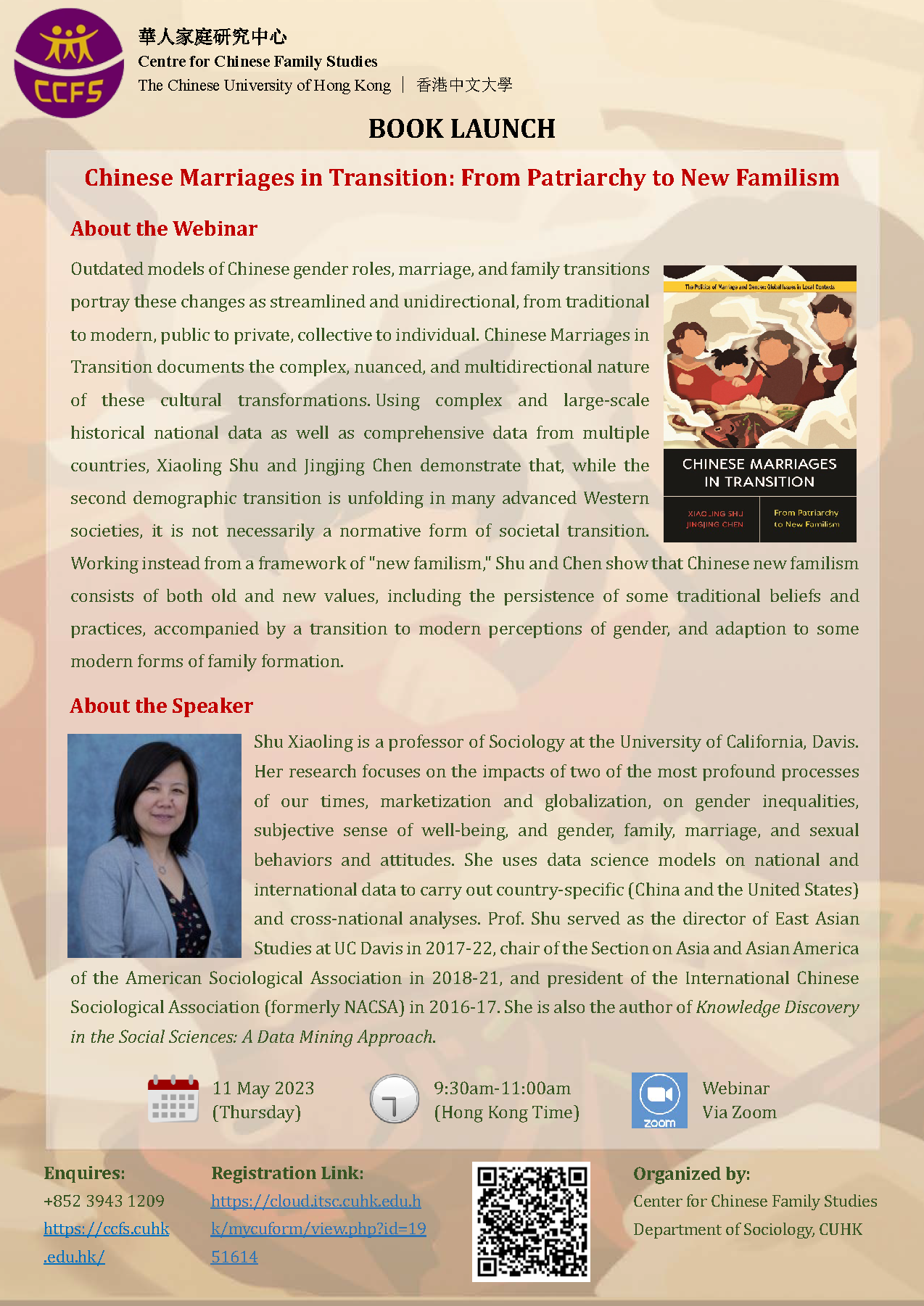 Outdated models of Chinese gender roles, marriage,
and family transitions portray these changes as streamlined and unidirectional,
from traditional to modern, public to private, collective to individual.
Chinese Marriages in Transition documents the complex, nuanced, and multidirectional nature of these cultural transformations.
Using complex and large-scale historical national data as well as comprehensive data from multiple countries,
Prof. Shu and her research team demonstrate that,
while the second demographic transition is unfolding in many advanced Western societies,
it is not necessarily a normative form of societal transition.
Working instead from a framework of “new familism”,
Prof. Shu and her research team show that the Chinese new familism consists of both old and new values,
including the persistence of some traditional beliefs and practices,
accompanied by a transition to modern perceptions of gender, and adaption to some modern forms of family formation.
Outdated models of Chinese gender roles, marriage,
and family transitions portray these changes as streamlined and unidirectional,
from traditional to modern, public to private, collective to individual.
Chinese Marriages in Transition documents the complex, nuanced, and multidirectional nature of these cultural transformations.
Using complex and large-scale historical national data as well as comprehensive data from multiple countries,
Prof. Shu and her research team demonstrate that,
while the second demographic transition is unfolding in many advanced Western societies,
it is not necessarily a normative form of societal transition.
Working instead from a framework of “new familism”,
Prof. Shu and her research team show that the Chinese new familism consists of both old and new values,
including the persistence of some traditional beliefs and practices,
accompanied by a transition to modern perceptions of gender, and adaption to some modern forms of family formation. |
|
|
The Fight for Representation: The State of Chinese Americans 2022
08:30–10:00 | 31 May 2023 | Online |
|
|
Speaker
Prof. Gao Qin |
Professor of Social Policy and Social Work, School of Social Work, Columbia University, U.S. |
|
Co-organizer
Department of Social Work, CUHK |
|
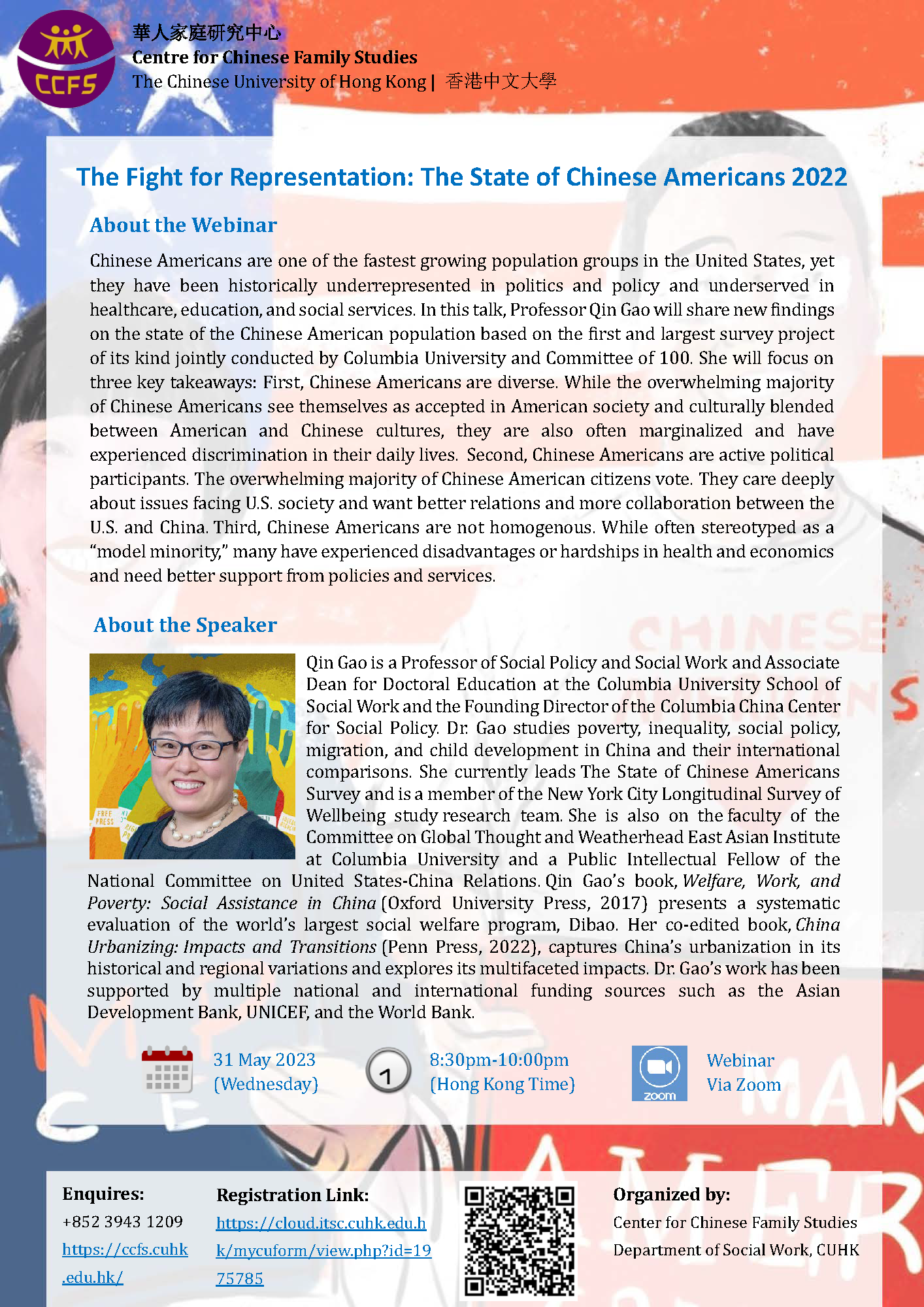 Chinese Americans are one of the fastest-growing population groups in the United States,
yet they have been historically underrepresented in politics and policy and underserved in healthcare, education, and social services.
In this talk, Prof. Qin Gao will share new findings on the state of the Chinese-American population based on the first and largest survey project of its kind jointly conducted by Columbia University and the Committee of 100.
She will focus on three key takeaways:
Chinese Americans are one of the fastest-growing population groups in the United States,
yet they have been historically underrepresented in politics and policy and underserved in healthcare, education, and social services.
In this talk, Prof. Qin Gao will share new findings on the state of the Chinese-American population based on the first and largest survey project of its kind jointly conducted by Columbia University and the Committee of 100.
She will focus on three key takeaways:First, Chinese Americans are a diverse group. While the overwhelming majority of Chinese Americans see themselves as accepted in American society and culturally blended between American and Chinese cultures, they are also often marginalized and have experienced discrimination in their daily lives. Second, Chinese Americans are active political participants. The overwhelming majority of Chinese-American citizens vote. They care deeply about issues facing U.S. society and want better relations and more collaboration between the U.S. and China. Third, Chinese Americans are not homogenous. While often stereotyped as a “model minority”, many have experienced disadvantages or hardships in health and economics and need better support from policies and services. |
|
|
Parental Nonstandard Work Schedules and Children: Peril or Opportunity?
10:00–11:30 | 23 June 2023 | Online |
|||||||||
|
Speaker
Prof. Minseop Kim |
Associate Professor, Department of Social Work, CUHK
|
Co-organizer
Department of Social Work, CUHK
|
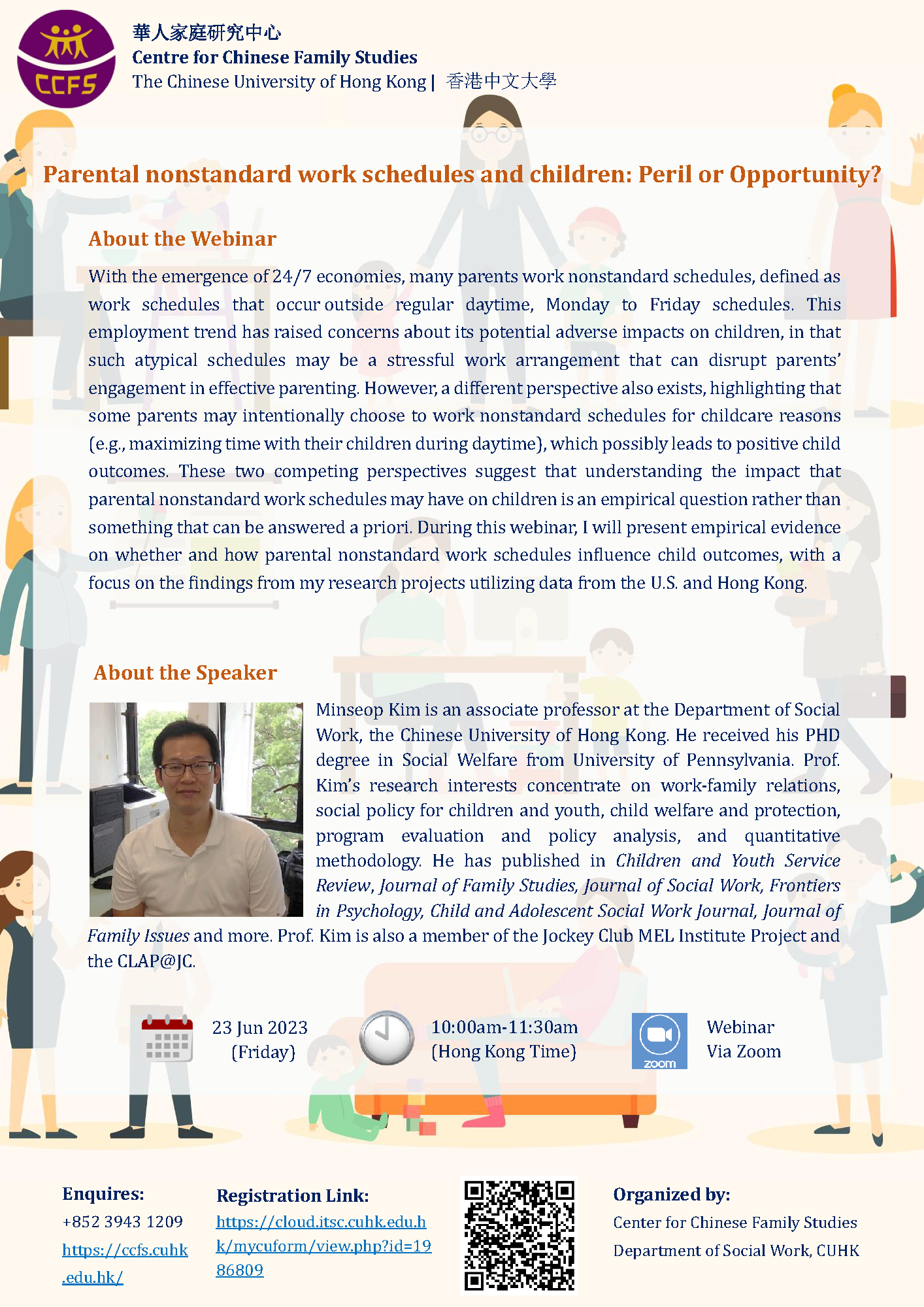 With the emergence of 24/7 economies, many parents work nonstandard schedules,
defined as work schedules that occur outside regular daytime, Monday to Friday schedules.
This employment trend has raised concerns about its potential adverse impacts on children,
in that such atypical schedules may be a stressful work arrangement that can disrupt parents’ engagement in effective parenting.
However, a different perspective also exists,
one that highlights the notion that some parents may intentionally choose to work nonstandard schedules for childcare reasons (e.g., maximizing time with their children during daytime),
which possibly leads to positive child outcomes.
These two competing perspectives suggest that understanding the impact that parental nonstandard work schedules may have on children is an empirical question rather than something that can be answered a priori.
With the emergence of 24/7 economies, many parents work nonstandard schedules,
defined as work schedules that occur outside regular daytime, Monday to Friday schedules.
This employment trend has raised concerns about its potential adverse impacts on children,
in that such atypical schedules may be a stressful work arrangement that can disrupt parents’ engagement in effective parenting.
However, a different perspective also exists,
one that highlights the notion that some parents may intentionally choose to work nonstandard schedules for childcare reasons (e.g., maximizing time with their children during daytime),
which possibly leads to positive child outcomes.
These two competing perspectives suggest that understanding the impact that parental nonstandard work schedules may have on children is an empirical question rather than something that can be answered a priori.During this webinar, the speaker presented empirical evidence on whether and how parental nonstandard work schedules influence child outcomes, with a focus on the findings from my research projects utilizing data from the U.S. and Hong Kong.
| | |||||
|
The Korean Family: A Luxury Good
14:30–16:00 | 25 September 2023 | Room 422, Sino Building, CUHK & Online |
|||||||||
|
Speaker
Prof. Hyunjoon Park |
Korea Foundation Professor of Sociology, Department of Sociology, University of Pennsylvania, U.S.
|
Co-organizer
Department of Sociology, CUHK
|
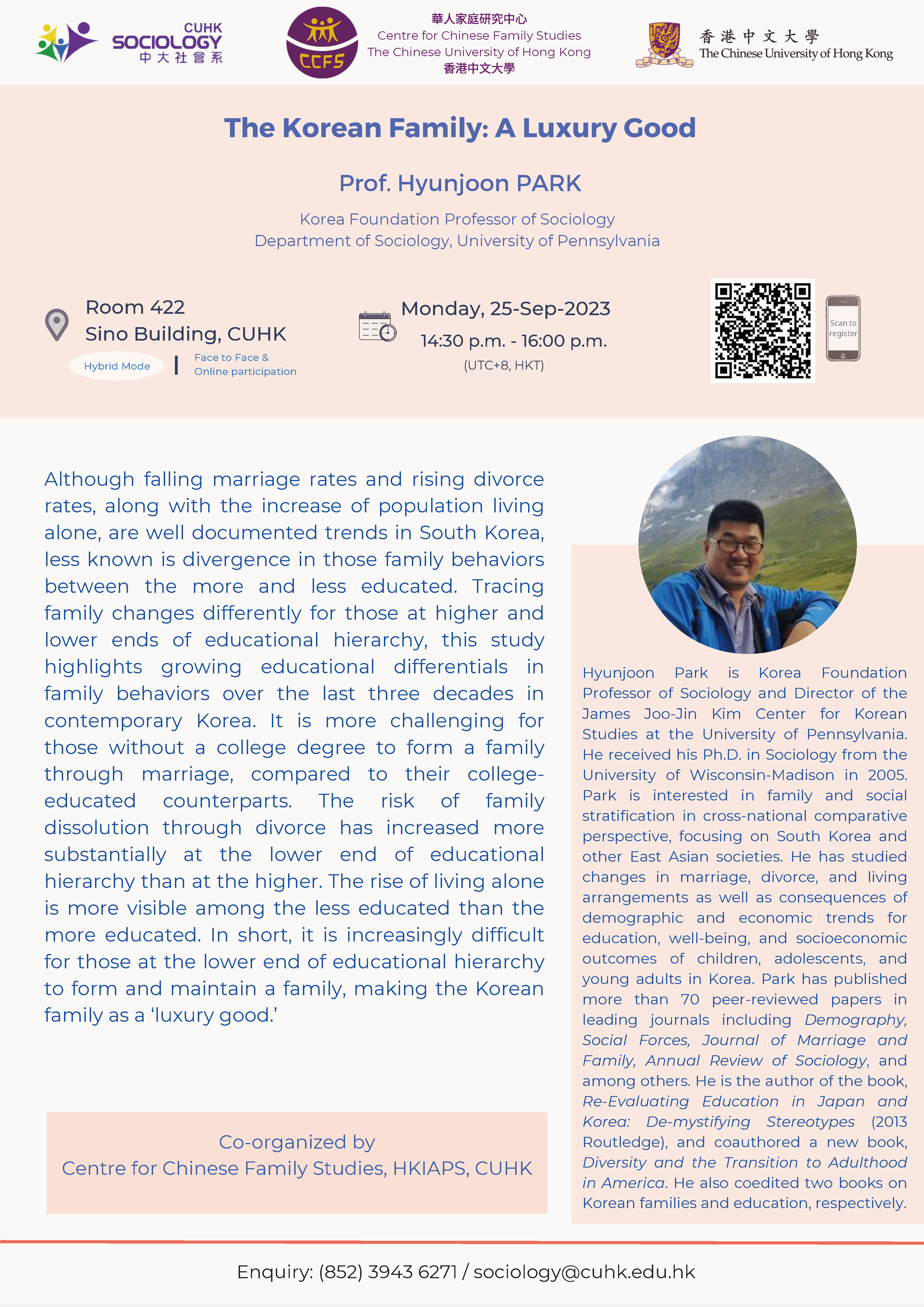 Although falling marriage rates and rising divorce rates,
along with an increase in those who are living alone,
are well documented trends in South Korea,
less known is a divergence in those family behaviours between the more and less educated.
Although falling marriage rates and rising divorce rates,
along with an increase in those who are living alone,
are well documented trends in South Korea,
less known is a divergence in those family behaviours between the more and less educated.This study highlights growing educational differentials in family behaviours over the last three decades in contemporary Korea. It is more challenging for those without a college degree to form a family through marriage, compared to their college-educated counterparts. The risk of family dissolution through divorce has increased more substantially at the lower end of the educational hierarchy than at the higher. The rise in the number of people living alone is more visible among the less educated than the more educated. In short, it is increasingly difficult for those at the lower end of the educational hierarchy to form and maintain a family, making the Korean family a “luxury good”.
| | |||||
|
Centre for Social and Political Development Studies
「國家記憶」—抗戰照片回國之路 (National Memories: The road of Photos of Sino-Japanese War back to China) 16:00–18:00 | 14 April 2023 | Room 505, 5/F., Esther Lee Building, CUHK & Online |
|
|
Speakers
Mr Yan Huan (晏歡) |
Architect |
|
Mr Niu Zi (牛子)
|
Photographer
|
|
Moderator
Dr Victor Zheng |
Associate Director (Executive), HKIAPS, CUHK |
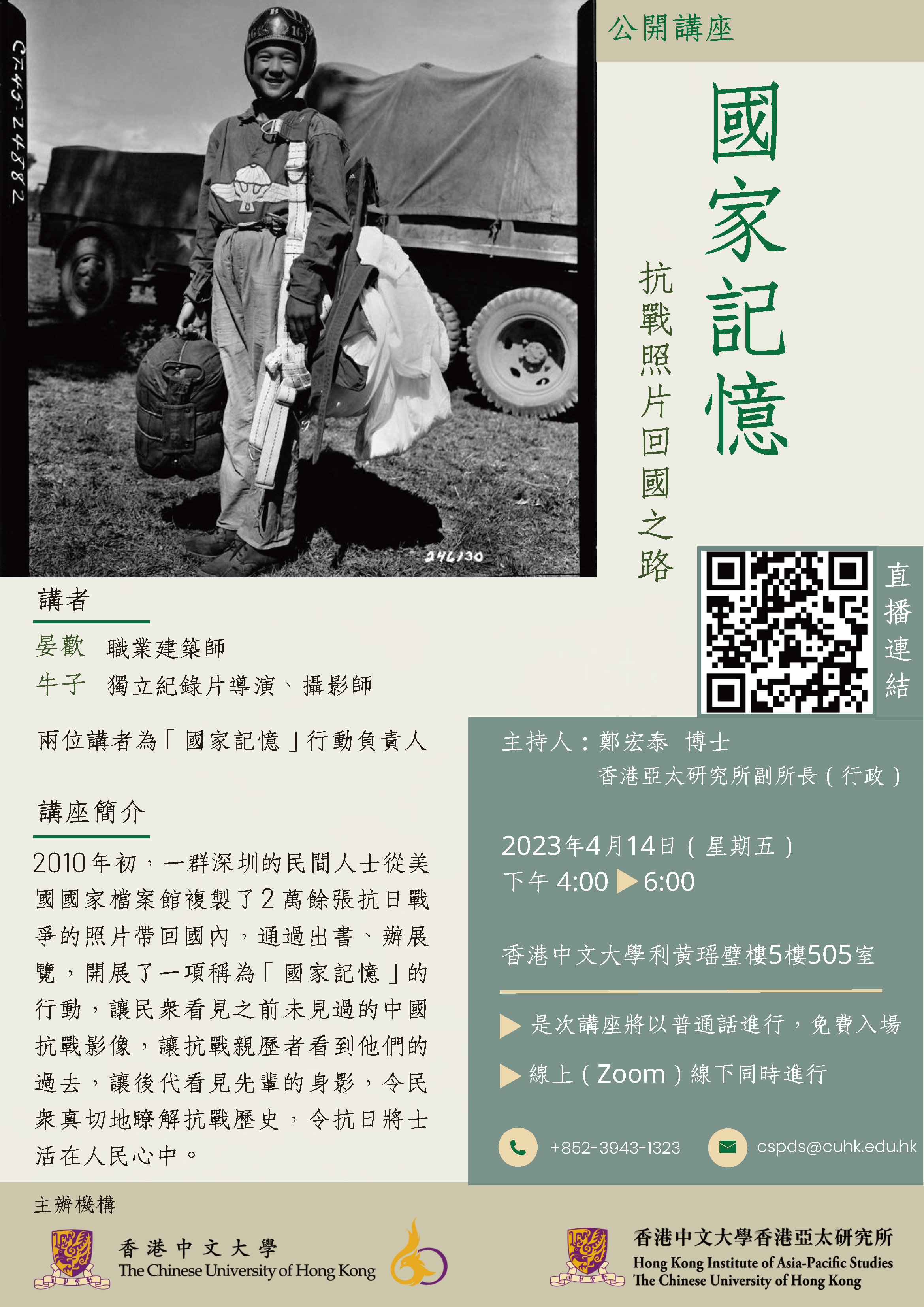 In the early 2010s a group of Shenzhen citizens duplicated more than 20,000 photographs of the War of Resistance Against Japanese Aggression from the U.S. National Archives.
They launched a project in China entitled “National Memories” (「國家記憶」) through publishing books and organizing exhibitions.
Their efforts enabled the public to view images of the War of Resistance Against Japan that had hitherto lain unseen.
Such a project allowed not only survivors, but also future generations,
to “witness” the war,
and made it possible for people to truly understand the history of the War of Resistance Against Japanese Aggression.
In the early 2010s a group of Shenzhen citizens duplicated more than 20,000 photographs of the War of Resistance Against Japanese Aggression from the U.S. National Archives.
They launched a project in China entitled “National Memories” (「國家記憶」) through publishing books and organizing exhibitions.
Their efforts enabled the public to view images of the War of Resistance Against Japan that had hitherto lain unseen.
Such a project allowed not only survivors, but also future generations,
to “witness” the war,
and made it possible for people to truly understand the history of the War of Resistance Against Japanese Aggression.Video: |
|
|
重探抗戰史—揭秘中日戰爭關鍵的未解之謎
(Revisit the History of Sino-Japanese War: Reveal of Unsolved Mysteries) 15:30–18:00 | 20 April 2023 | Room 505, 5/F., Esther Lee Building, CUHK & Online |
|
|
Speaker
Prof. Tai-Chun Kuo |
Research Fellow, Hoover Institution, Stanford University, U.S. |
|
Moderator
Dr Victor Zheng |
Associate Director (Executive), HKIAPS, CUHK |
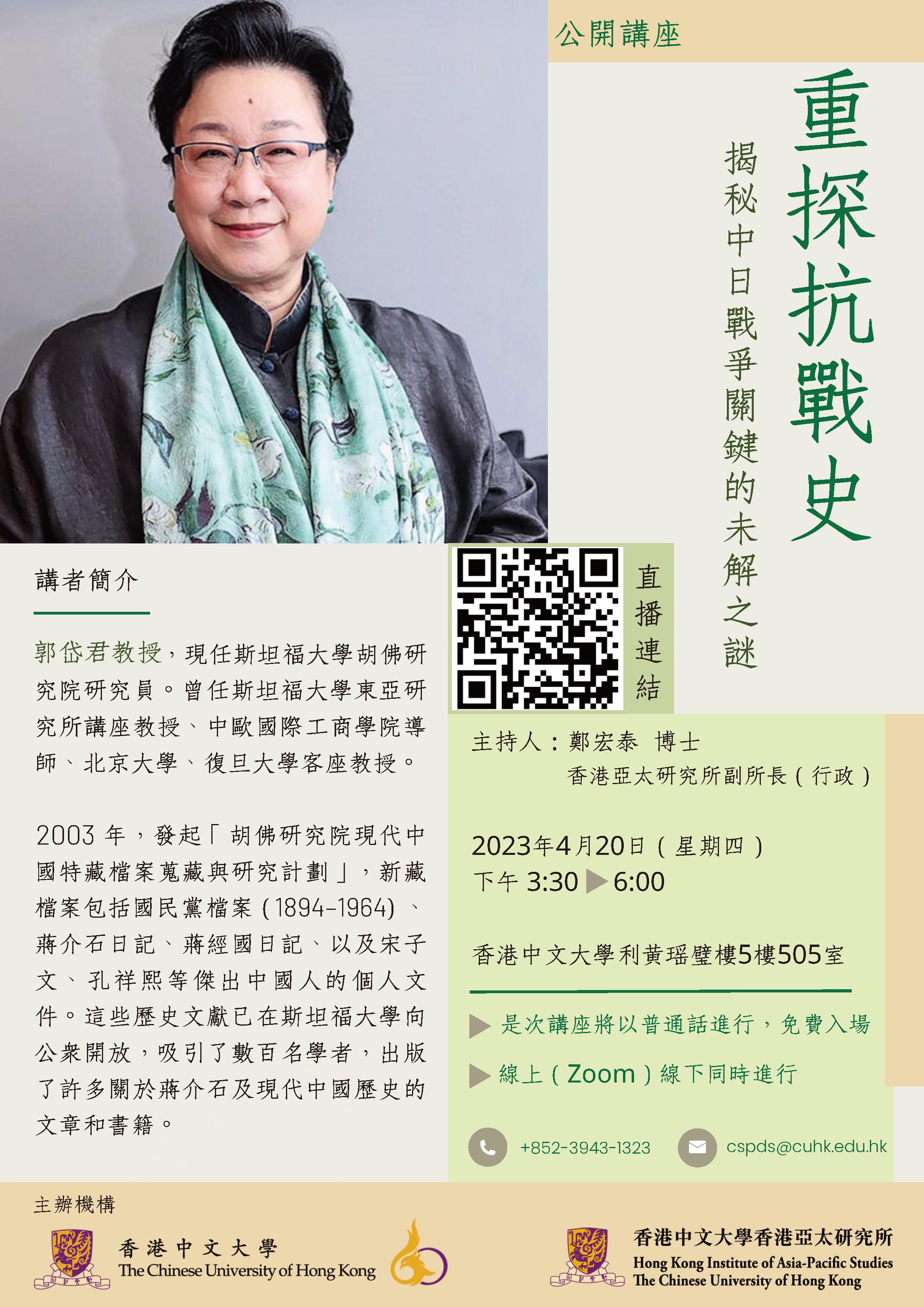 The War of Resistance Against Japanese Aggression caused millions of deaths among the Chinese people.
It also changed the politics of China, the Asia-Pacific region, and the world.
The consequences of the war are still felt today. Cross-strait relationships are extremely tense.
When the United States, China, Japan, and Russia are caught up in the throes of war,
the Indo-Pacific region has emerged as the focal point of international geopolitics and great power competition.
Scholars from the United States, China, Japan,
and Taiwan collaborated at Stanford University’s Hoover Institution to re-examine the war from a global perspective by using the most recent historical data.
The War of Resistance Against Japanese Aggression caused millions of deaths among the Chinese people.
It also changed the politics of China, the Asia-Pacific region, and the world.
The consequences of the war are still felt today. Cross-strait relationships are extremely tense.
When the United States, China, Japan, and Russia are caught up in the throes of war,
the Indo-Pacific region has emerged as the focal point of international geopolitics and great power competition.
Scholars from the United States, China, Japan,
and Taiwan collaborated at Stanford University’s Hoover Institution to re-examine the war from a global perspective by using the most recent historical data.Video: |
|
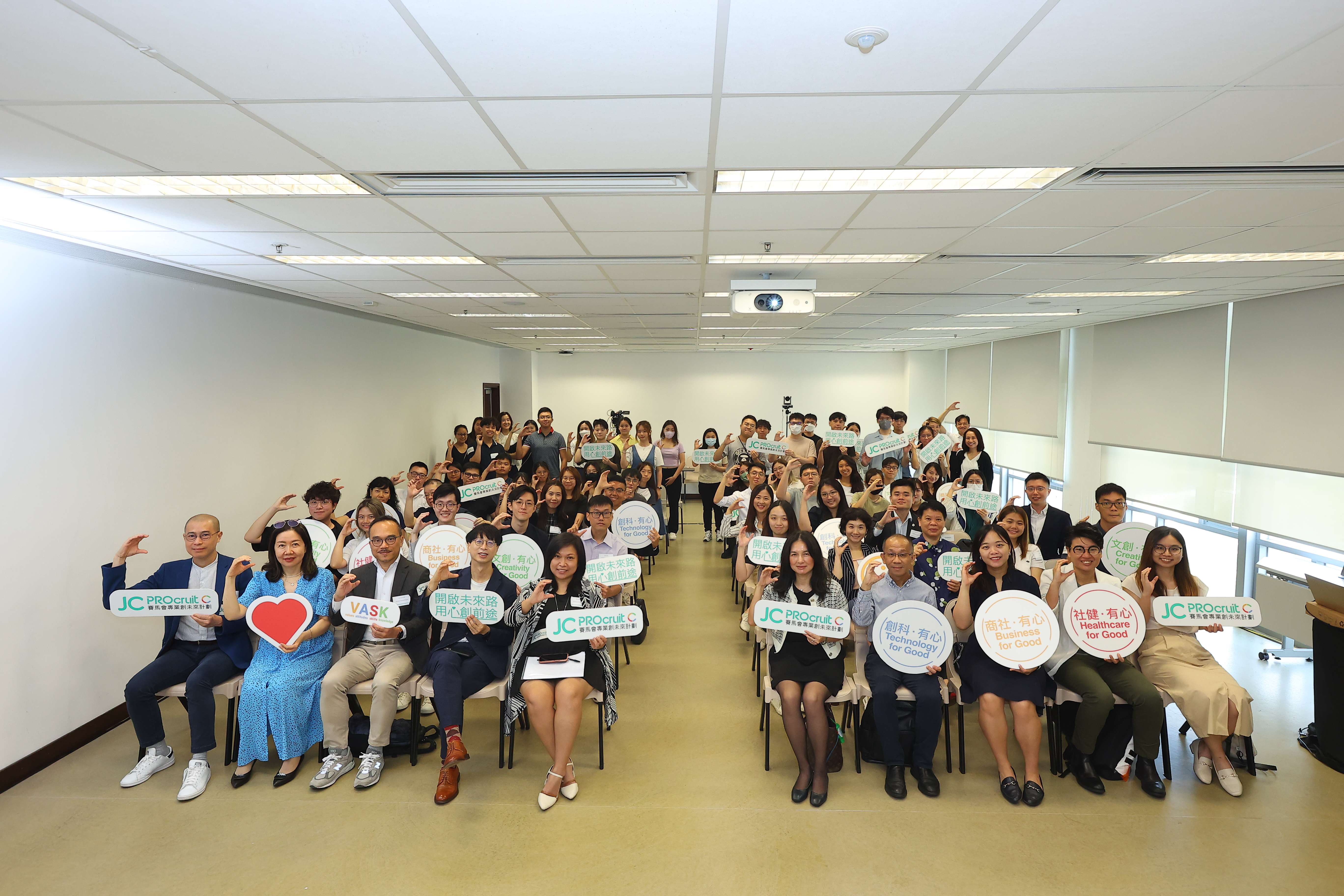 Cohort 3A: 26–29 June 2023
Cohort 3A: 26–29 June 2023Cohort 3B: 3–6 July 2023 Cohort 3C: 10–13 July 2023 Talent development experts along with JC PROcruit C’s partners have jointly designed a pre-onboarding bootcamp for more than 500 first-time-job-seekers. The bootcamp provides essential workplace skills, including soft skills, digital literacy, and creative problem solving to get first-time-job-seekers ready for a new stage in life. |
|
Talent development experts along with JC PROcruit C’s partners have jointly designed six coaching sessions for more than 500 first-time-job-seekers. The continuous coaching gives trainees a shot in the arm in developing their own career, under the themes of work transition, work values and attitudes, personal effectiveness, workplace communication, interpersonal relationships, and career planning. The bi-monthly sessions provide regular meet-ups for peer sharing and listening to workplace experiences under the guidance of a career coach, so that trainees can gain mutual emotional support, reflect together, and contribute different perspectives to handle challenges. |
|
|
Speaker
Dr Terence K. Y. Yuen |
Founder and Executive Director, Hong Kong Institute of Social Impact Analysts |
|
Co-organizer
Centre for Social Innovation Studies, HKIAPS, CUHK |
|
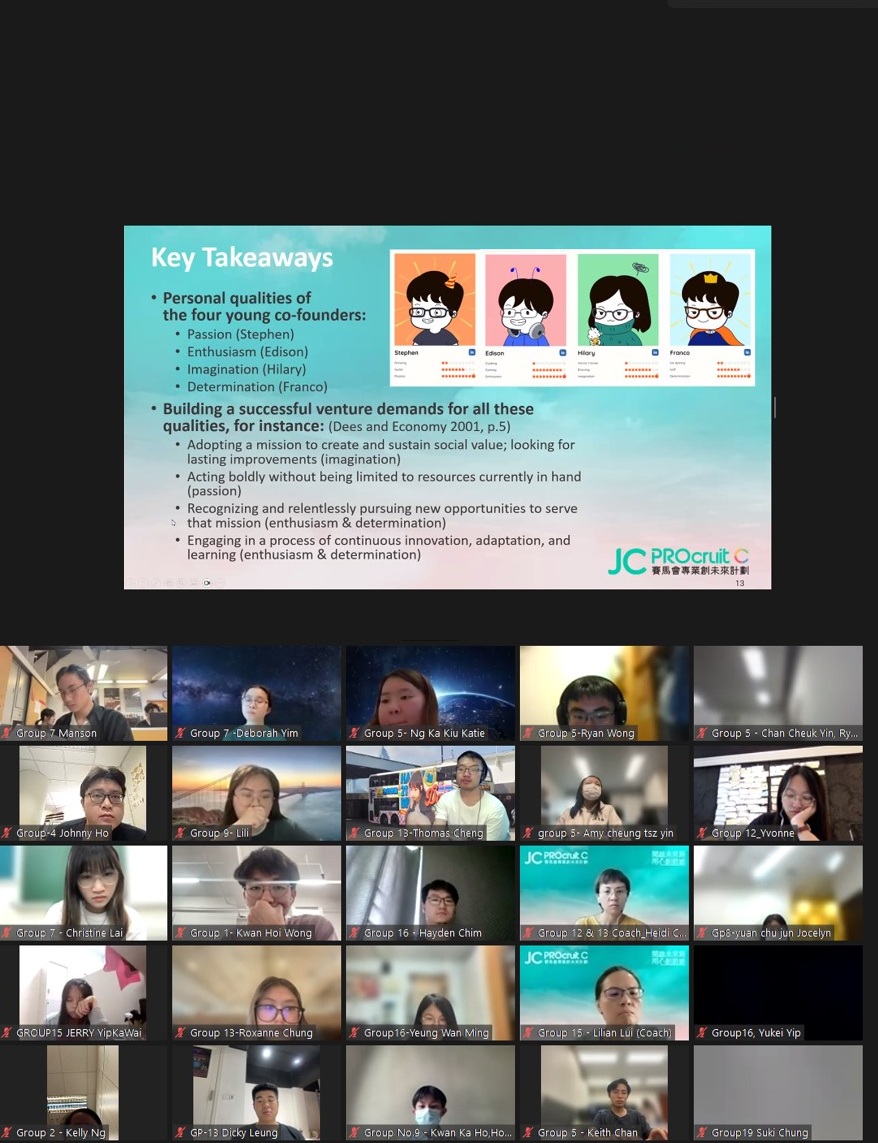 This was part of an online course delivered to help first-time jobseekers delve deeper into the world of social innovation.
Social innovators and entrepreneurs discussed the 5W1H of social innovation:
WHAT it is, WHY it is important, WHO social innovators are, WHERE it can happen,
and HOW you can be part of the change.
Social innovation concepts and tools were illustrated to guide participants in thinking and discussing how to help a social innovation project communicate impacts in relation to corporate social responsibility (CSR) and sustainable development goals (SDGs),
thereby
This was part of an online course delivered to help first-time jobseekers delve deeper into the world of social innovation.
Social innovators and entrepreneurs discussed the 5W1H of social innovation:
WHAT it is, WHY it is important, WHO social innovators are, WHERE it can happen,
and HOW you can be part of the change.
Social innovation concepts and tools were illustrated to guide participants in thinking and discussing how to help a social innovation project communicate impacts in relation to corporate social responsibility (CSR) and sustainable development goals (SDGs),
thereby turning risks into opportunities from the COVID to the post-COVID eras. |
|
|
Gender Research Centre
Annual Gender Roles Workshop 2023: Technology, Gender and Safety in Hong Kong, mainland China and Taiwan 10:00–12:45 | 17 June 2023 | LT9, 2/F, Yasumoto International Academic Park, CUHK |
|
|
Speakers
Prof. Ying-yi Hong |
Associate Director, HKIAPS |
|
Prof. Lynne Nakano
|
Co-Director, GRC, HKIAPS
|
|
Dr Ferrick C. M. Chu
|
Executive Director (Operations), Equal Opportunities Commission
|
|
Prof. Susanne Y. P. Choi
|
Co-Director, GRC, HKIAPS
|
|
Prof. Xiying Wang
|
Professor, Faculty of Education, Beijing Normal University
|
|
Prof. Hsiu-hua Shen
|
Associate Professor, Institute of Sociology, National Tsing-hua University
|
|
Ms Doris T. W. Chong
|
Executive Director, Association Concerning Sexual Violence Against Women |
|
Mr Billie Lau
|
Executive Director Designate, The Boys’ & Girls’ Clubs Association of Hong Kong |
|
Ms. Po Po G |
The Chief, Good Moaning
|
|
Mx. Charlton C. L. Shiu
|
Founder, Diversity in Community (Dicomm)
|
|
Moderators
Prof. Winnie K. W. So |
Professor, The Nethersole School of Nursing, Faculty of Medicine, CUHK
|
|
Prof. Ivy Wong |
Associate Professor & Director, Gender Studies Programme, CUHK
|
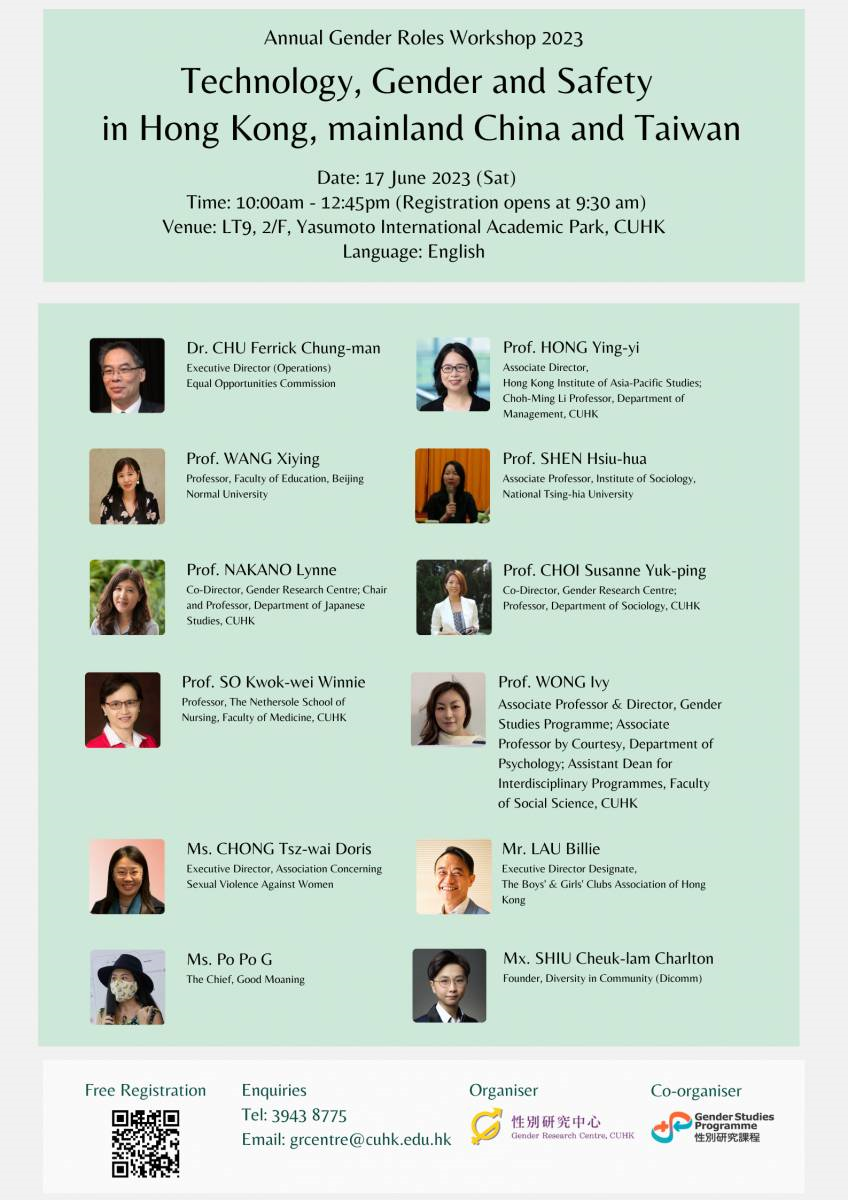 The Annual Gender Roles Workshop 2023, themed “Technology, Gender, and Safety” in Hong Kong, Mainland China, and Taiwan,
was successfully held on 17 June 2023, at CUHK. Prof. Ying-yi Hong (Associate Director, HKIAPS) first gave a welcome speech,
followed by an opening speech by Prof. Lynne Nakano.
Dr Ferrick C. M. Chu, Prof. Susanne Y. P. Choi, Prof. Xiying Wang, and Prof. Hsiu-hua Shen each gave a 15-minute presentation on the topics of cyber sexual harassment,
cyber dating/relationship abuse,
evolving dating practices in mainland Hong Kong, mainland China, and Taiwan.
The Annual Gender Roles Workshop 2023, themed “Technology, Gender, and Safety” in Hong Kong, Mainland China, and Taiwan,
was successfully held on 17 June 2023, at CUHK. Prof. Ying-yi Hong (Associate Director, HKIAPS) first gave a welcome speech,
followed by an opening speech by Prof. Lynne Nakano.
Dr Ferrick C. M. Chu, Prof. Susanne Y. P. Choi, Prof. Xiying Wang, and Prof. Hsiu-hua Shen each gave a 15-minute presentation on the topics of cyber sexual harassment,
cyber dating/relationship abuse,
evolving dating practices in mainland Hong Kong, mainland China, and Taiwan.A thought-provoking panel discussion moderated by Prof. Ivy Wong featured prominent figures such as Ms Doris T. W. Chong, Mr Billie Lau, Ms Po Po G, and Mx Charlton C. L. Shiu, moderated by Prof. Ivy Wong. Attendees engaged in enriching Q&A sessions, fostering meaningful dialogue. With participation from 75 individuals, including students, faculty from CUHK and other institutions, and valued NGO partners, this event was a collaborative platform for learning and addressing critical issues of gender and technology. Prof. Nakano’s concluding remarks encapsulated the importance of such discussions in shaping our society’s future. |
|
|
Emerging New Gendered Roles in Chinese Rural Families among Female Vocational College Students
12:30–14:00 | 20 Sep 2023 | Room 109, Chen Kou Bun Building, CUHK |
|
|
Speaker
Prof. Anita Koo |
Professor, Department of Sociology, Hong Kong Baptist University
|
|
Moderator
Prof. Yiu-tung Suen |
Associate Director, Gender Research Centre, HKIAPS, CUHK
|
|
Co-organizer
Gender Studies Programme, CUHK |
|
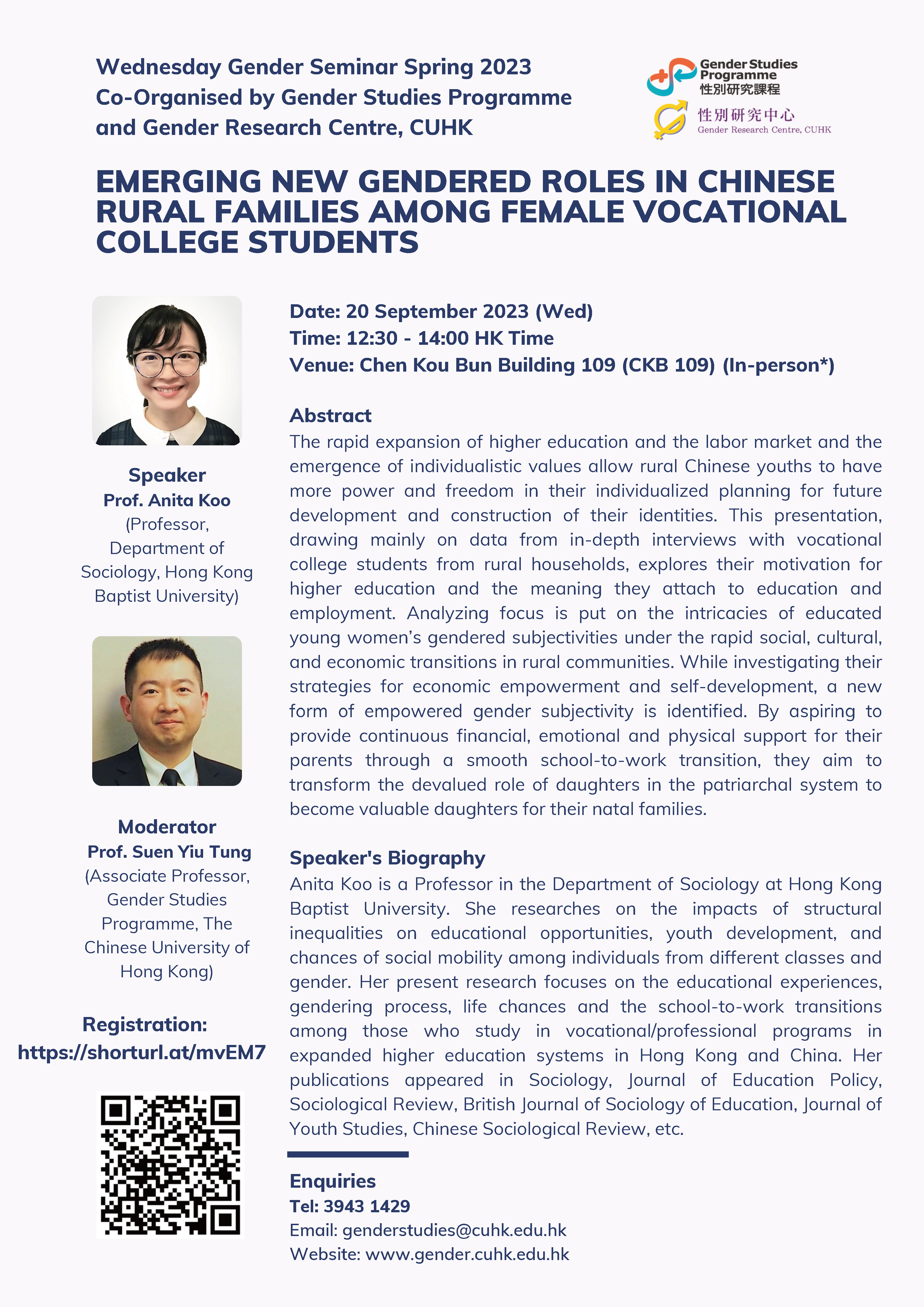 The rapid expansion of higher education and the labour market,
and the emergence of individualistic values,
are giving rural Chinese youths more power and freedom to plan their future development and construct their identities.
This seminar, drawing mainly on data from in-depth interviews with vocational college students from rural households,
explores their motivation for pursuing higher education and the meanings that they attach to education and employment.
The focus of the analysis is on the intricacies of the gendered subjectivities of young, educated women under the rapid social, cultural, and economic transitions that are occurring in rural communities.
While investigating their strategies for achieving economic empowerment and self-development,
a new form of empowered gender subjectivity was identified.
The rapid expansion of higher education and the labour market,
and the emergence of individualistic values,
are giving rural Chinese youths more power and freedom to plan their future development and construct their identities.
This seminar, drawing mainly on data from in-depth interviews with vocational college students from rural households,
explores their motivation for pursuing higher education and the meanings that they attach to education and employment.
The focus of the analysis is on the intricacies of the gendered subjectivities of young, educated women under the rapid social, cultural, and economic transitions that are occurring in rural communities.
While investigating their strategies for achieving economic empowerment and self-development,
a new form of empowered gender subjectivity was identified.By aspiring to provide continuous financial, emotional, and physical support for their parents through a smooth transition from school to work, these women aim to transform the devalued role of daughters in the patriarchal system into valued members of their natal families. |
|
|
Gender Patterns in Livelihood Choices and the Economic Consequences for Rural Households in China
12:30–14:00; | 27 September 2023 | Room 109, Chen Kou Bun Building, CUHK |
|
|
Speaker
Prof. Yuying Tong |
Co-Director, Centre for Chinese Family Studies, HKIAPS
|
|
Moderator
Prof. Lynne Nakano |
Co-Director, Gender Research Centre, HKIAPS
|
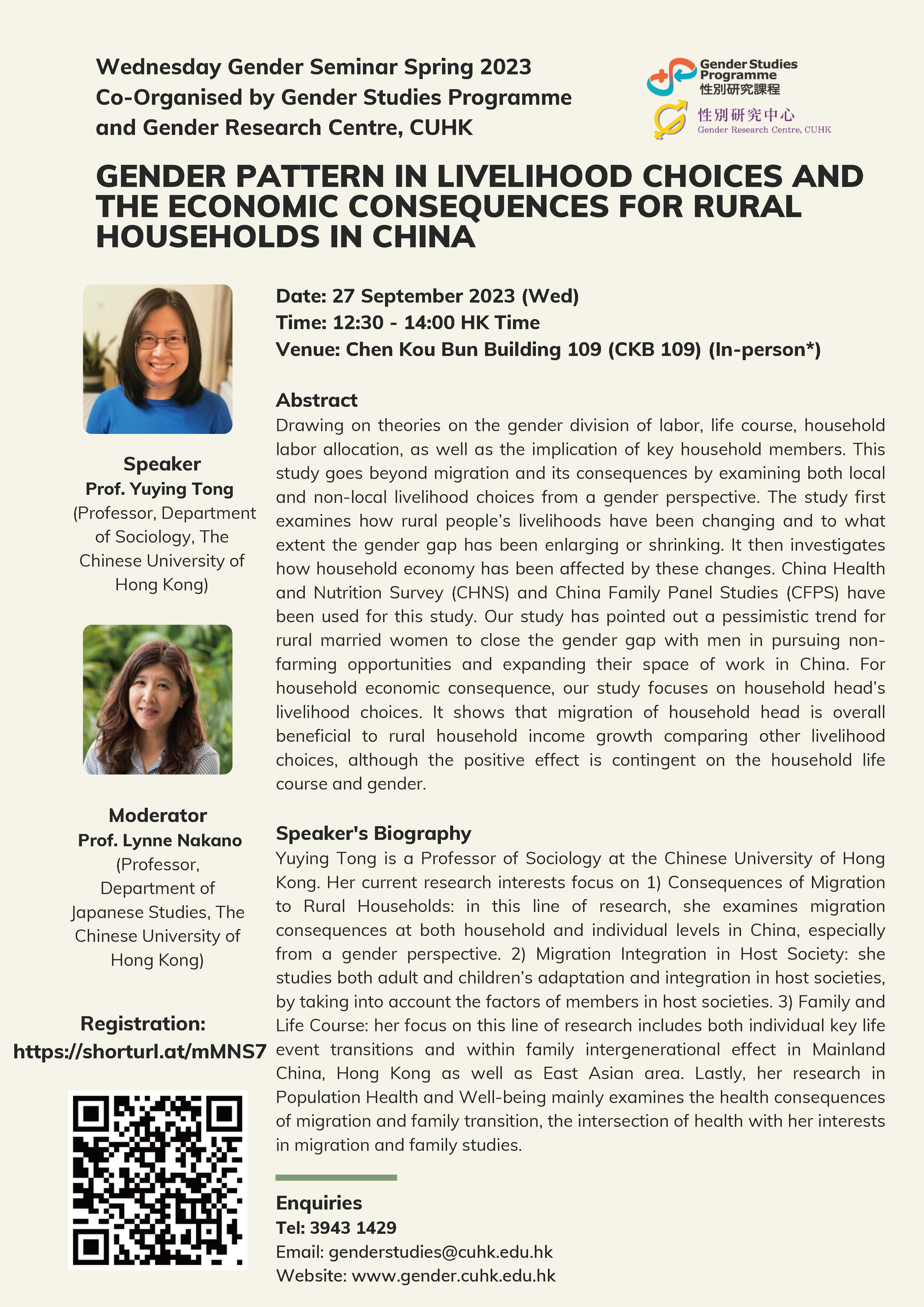 During this Wednesday seminar,
Prof. Tong delved into the complexities of “Online Sexual Harassment, Harm, and Relationality”,
featuring Prof. Susanne Y. P. Choi and Dr Tangi Yip from the GRC.
This seminar explored the various dimensions of harm resulting from online sexual harassment (OSH) and its intricate connection to social relationships.
Through interviews with 37 young OSH survivors,
the research indicates that emotional and psychological distress is prevalent.
During this Wednesday seminar,
Prof. Tong delved into the complexities of “Online Sexual Harassment, Harm, and Relationality”,
featuring Prof. Susanne Y. P. Choi and Dr Tangi Yip from the GRC.
This seminar explored the various dimensions of harm resulting from online sexual harassment (OSH) and its intricate connection to social relationships.
Through interviews with 37 young OSH survivors,
the research indicates that emotional and psychological distress is prevalent.The seminar highlighted the complexities that arise when harassment involves known individuals and the potential for victim-blaming when survivors seek support. Furthermore, it emphasized the pivotal roles of trust and gender awareness in mitigating harm. |
|
|
Speaker
Dr Rayner Tan |
Visiting research fellow, Saw Swee Hock School of Public Health, National University of Singapore |
|
|
Moderator
Prof. Yiu-tung Suen |
Associate Director, Gender Research Centre, HKIAPS, CUHK
|
|
|
Co-organizer
Gender Studies Programme, CUHK |
||
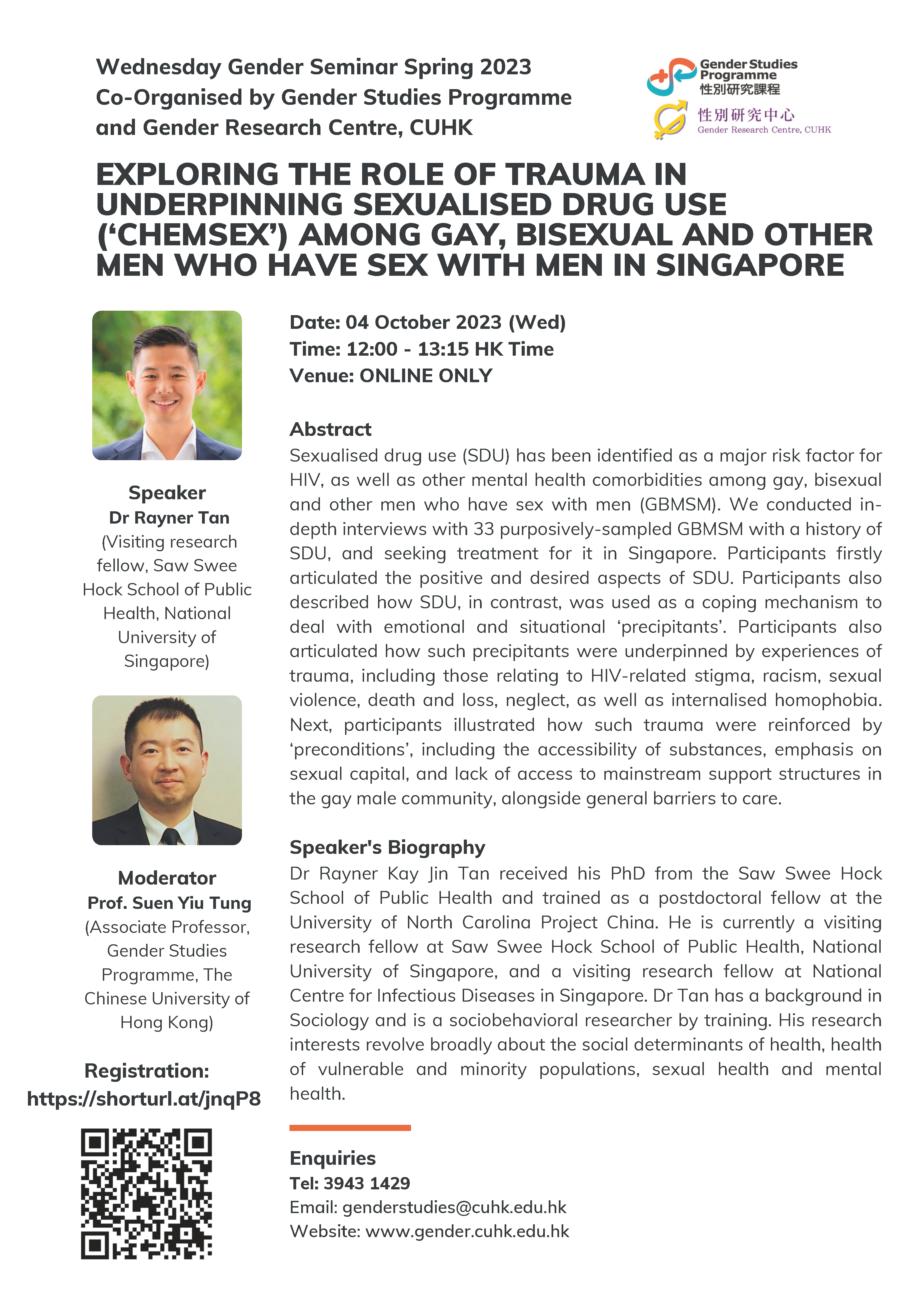 Dr Rayner Tan, a sociobehavioural researcher,
explores the link between trauma and sexualized drug use (“chemsex”) among gay, bisexual,
and other men who have sex with men (GBMSM) in Singapore.
Moderated by Prof. Yiu-tung Suen, the seminar delves into Dr Tan’s research,
which includes in-depth interviews with 33 GBMSM seeking treatment for their chemsex history.
Participants in the study reveal both the positive aspects of chemsex and its role as a coping mechanism for trauma-related emotional and situational challenges,
such as HIV-related stigma, racism, sexual violence, loss, neglect, and internalized homophobia.
Dr Rayner Tan, a sociobehavioural researcher,
explores the link between trauma and sexualized drug use (“chemsex”) among gay, bisexual,
and other men who have sex with men (GBMSM) in Singapore.
Moderated by Prof. Yiu-tung Suen, the seminar delves into Dr Tan’s research,
which includes in-depth interviews with 33 GBMSM seeking treatment for their chemsex history.
Participants in the study reveal both the positive aspects of chemsex and its role as a coping mechanism for trauma-related emotional and situational challenges,
such as HIV-related stigma, racism, sexual violence, loss, neglect, and internalized homophobia.Dr Tan’s findings also highlight how these traumas are compounded by factors such substance accessibility, the emphasis on sexual capital, and limited access to support structures within the gay male community. The seminar underscores an urgent need for trauma-informed care, so as to address the associated risks, including HIV and mental health issues. |
||
|
Marriage Unbound: State Law, Power, and Inequality in Contemporary China
10:30–11:30 | 11 Oct 2023 | Online |
|
|
Speaker
Prof. Ke Li |
Assistant Professor, Department of Political Science, John Jay College of the City University of New York, U.S. |
|
Moderator
Prof. Ling Han |
Assistant Professor, Gender studies Programme, CUHK
|
|
Co-organizer
Gender Studies Programme, CUHK |
|
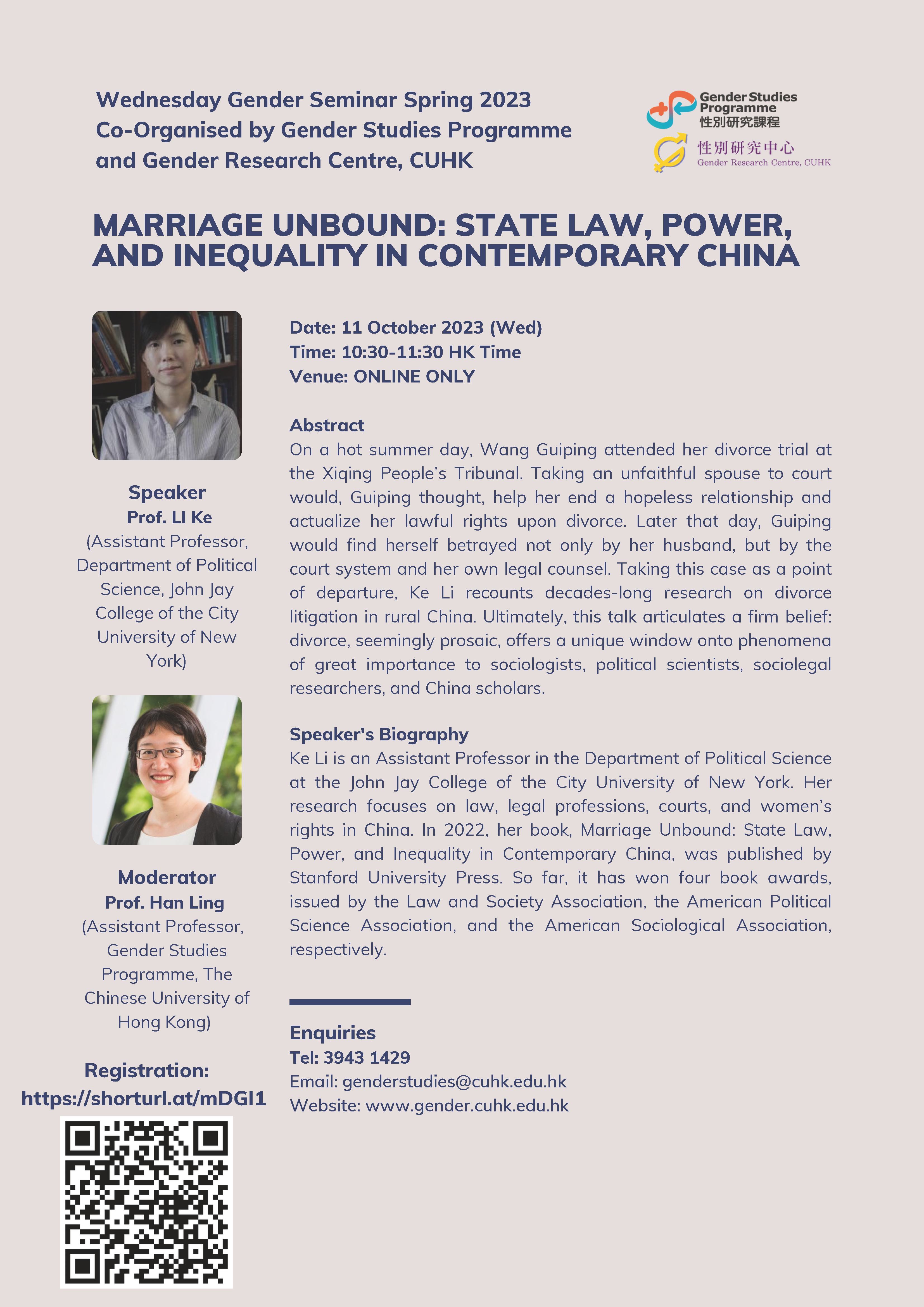 The seminar delved into Prof. Li’s extensive research on divorce litigation in rural China,
using a compelling case as a starting point.
Prof. Li’s work sheds light on the profound sociological and political implications of divorce,
illustrating how it offers a unique perspective on issues of great significance.
Her recent book, Marriage Unbound: State Law, Power, and Inequality in Contemporary China has received accolades from prestigious associations,
including the Law and Society Association, the American Political Science Association, and the American Sociological Association.
Ultimately, this seminar articulates a firm belief:
Divorce, seemingly prosaic,
offers a unique window onto phenomena of great importance to sociologists,
political scientists, sociolegal researchers, and China scholars.
The seminar delved into Prof. Li’s extensive research on divorce litigation in rural China,
using a compelling case as a starting point.
Prof. Li’s work sheds light on the profound sociological and political implications of divorce,
illustrating how it offers a unique perspective on issues of great significance.
Her recent book, Marriage Unbound: State Law, Power, and Inequality in Contemporary China has received accolades from prestigious associations,
including the Law and Society Association, the American Political Science Association, and the American Sociological Association.
Ultimately, this seminar articulates a firm belief:
Divorce, seemingly prosaic,
offers a unique window onto phenomena of great importance to sociologists,
political scientists, sociolegal researchers, and China scholars.
|
|
|
Online Sexual Harassment, Harm, and Relationality
10:30–11:30 | 18 Oct 2023 | Rm 109, Chen Kou Bun Building, CUHK |
|
|
Speakers
Dr Tangi Yip |
Postdoctoral Fellow, Gender Research Centre, HKIAPS, CUHK |
|
Prof. Susanne Y. P. Choi |
Co-Director, Gender Research Centre, HKIAPS
|
|
Moderator
Prof. Jing Song |
Associate Professor, Gender Studies Programme, CUHK
|
|
Co-organizer
Gender Studies Programme, CUHK |
|
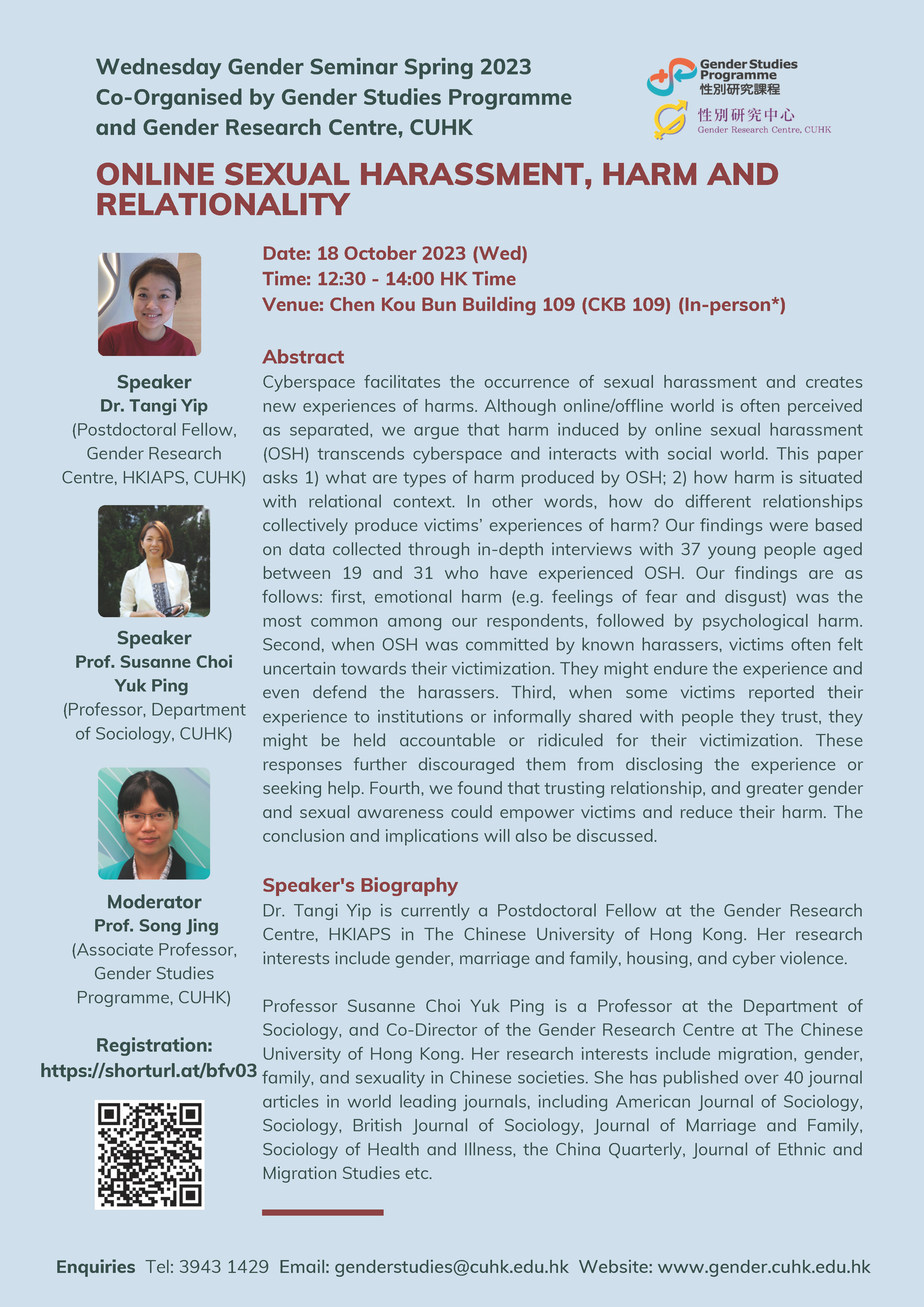 Cyberspace facilitates the occurrence of sexual harassment and creates new experiences of harms.
Although the online/offline world is often perceived as separate,
the research team argue that harm induced by online sexual harassment (OSH) transcends cyberspace and interacts with the social world.
This seminar asks: 1) What types of harm are produced by OSH?;
2) How is harm situated with relational context?
In other words, how do different relationships collectively produce victims’ experiences of harm?
Cyberspace facilitates the occurrence of sexual harassment and creates new experiences of harms.
Although the online/offline world is often perceived as separate,
the research team argue that harm induced by online sexual harassment (OSH) transcends cyberspace and interacts with the social world.
This seminar asks: 1) What types of harm are produced by OSH?;
2) How is harm situated with relational context?
In other words, how do different relationships collectively produce victims’ experiences of harm?The research team findings were based on data collected through in-depth interviews with 37 young people aged between 19 and 31 who have experienced OSH. The findings are as follows: First, emotional harm (e.g., feelings of fear and disgust) was the most common among our respondents, followed by psychological harm. Second, when OSH was committed by known harassers, victims often felt a sense of uncertainty about their victimization. They might endure the experience and even defend the harassers. Third, when some victims reported their experience to institutions or informally shared them with people they trusted, they risked being held accountable or ridiculed for their victimization. These responses further discouraged them from disclosing the experience or seeking help. Fourth, we found that relationships of trust, and greater gender and sexual awareness could empower victims and reduce their harm. The conclusion and implications will also be discussed. |
|
|
Speaker
Prof. Xingzhong Yu |
Chair Professor, Faculty of Law, University of Macao
|
|
Moderator
Prof. Chao Xi |
Director, Chinese Law Programme, HKIAPS
|
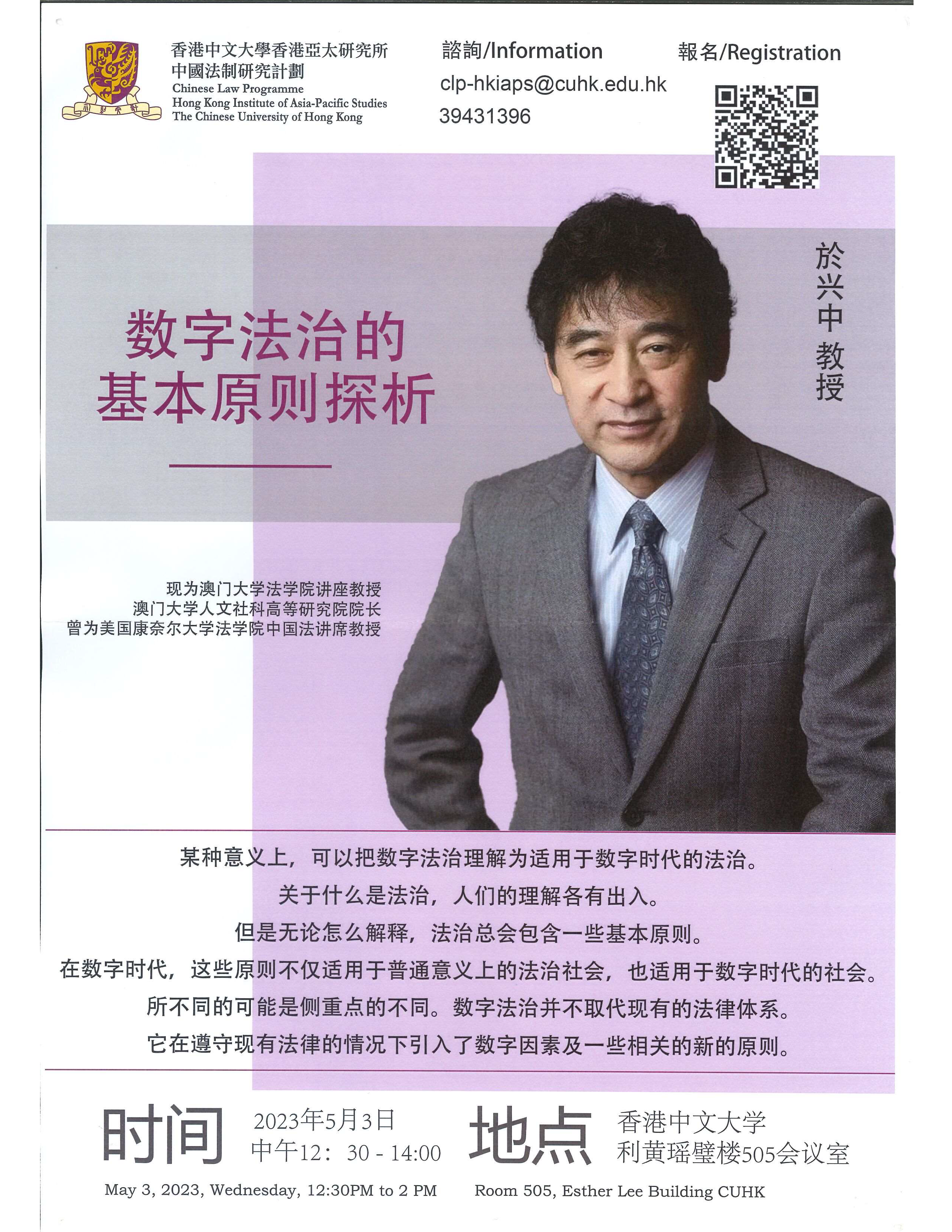 某種意義上,可以把數字法治理解為適用於數字時代的法治。
關於什麼是法治,人們的理解各有出入,但是無論怎麼解釋,法治總會包含一些基本原則。
在數字時代,這些原則不僅適用於普通意義上的法治社會,也適用於數字時代的社會,所不同的可能是側重點的不同。
數字法治並不取代現有的法律體系,它在遵守現有法律的情況下引入了數字因素及一些相關的新的原則。
某種意義上,可以把數字法治理解為適用於數字時代的法治。
關於什麼是法治,人們的理解各有出入,但是無論怎麼解釋,法治總會包含一些基本原則。
在數字時代,這些原則不僅適用於普通意義上的法治社會,也適用於數字時代的社會,所不同的可能是側重點的不同。
數字法治並不取代現有的法律體系,它在遵守現有法律的情況下引入了數字因素及一些相關的新的原則。
|
|
|
Speaker
Prof. Zhiwei Tong |
Distinguished Professor, Guangdong University of Finance and Economics
|
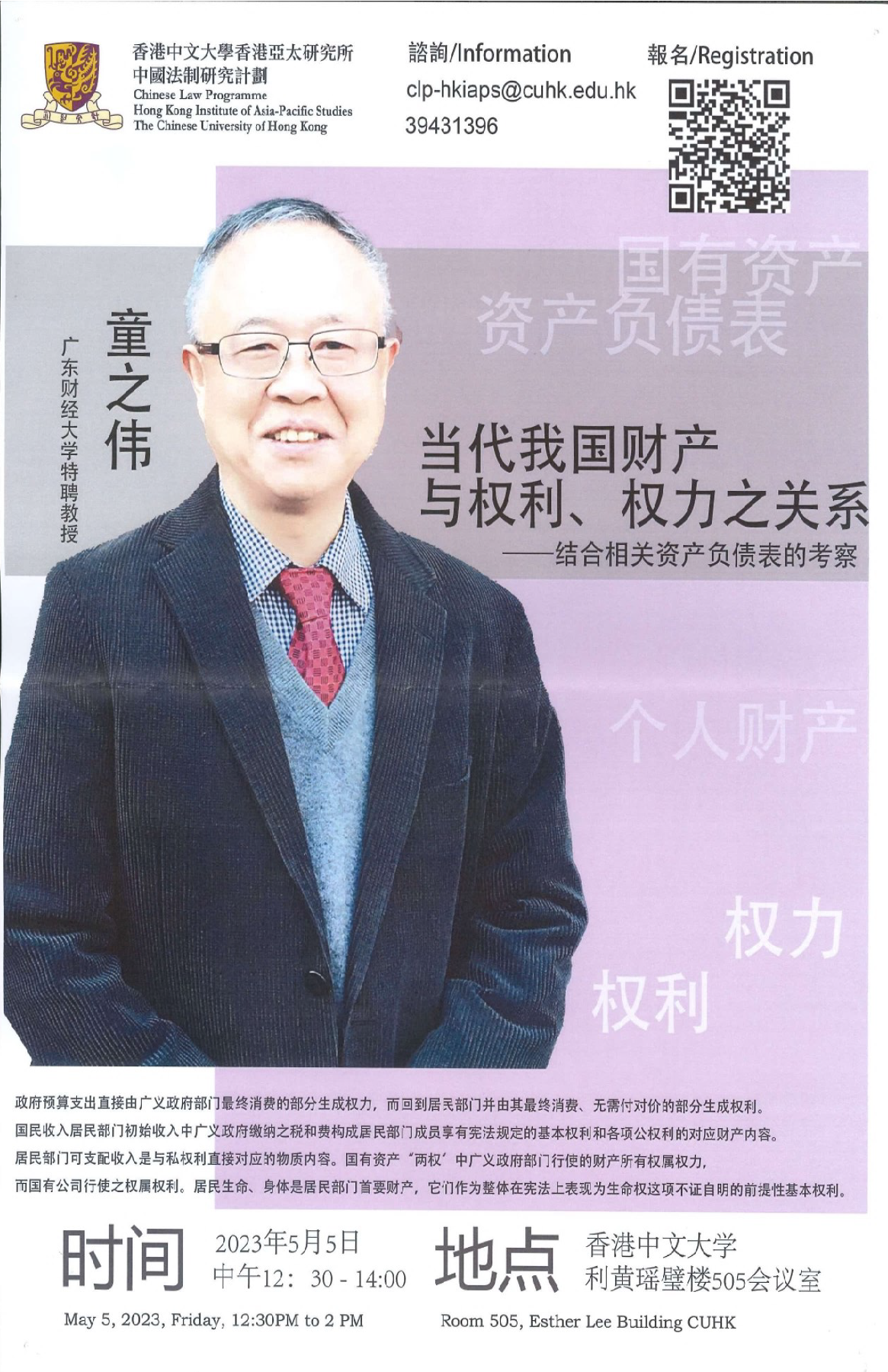 政府預算支出直接由廣義政府部門最終消費的部分生成權力,而回到居民部門並由其最終消費、無需付對價的部分生成權利。
國民收入居民部門初始收入中廣義政府繳納之稅和費構成居民部門成員享有憲法規定的基本權利和各項公權利的對應財產內容。
居民部門可支配收入是與私權利直接對應的物質內容。
國有資產「兩權」中廣義政府部門行使的財產所有權屬權力,而國有公司行使之權屬權利。
居民生命、身體是居民部門首要財產,它們作為整體在憲法上表現為生命這項不證自明的前提性基本權利。
政府預算支出直接由廣義政府部門最終消費的部分生成權力,而回到居民部門並由其最終消費、無需付對價的部分生成權利。
國民收入居民部門初始收入中廣義政府繳納之稅和費構成居民部門成員享有憲法規定的基本權利和各項公權利的對應財產內容。
居民部門可支配收入是與私權利直接對應的物質內容。
國有資產「兩權」中廣義政府部門行使的財產所有權屬權力,而國有公司行使之權屬權利。
居民生命、身體是居民部門首要財產,它們作為整體在憲法上表現為生命這項不證自明的前提性基本權利。
|
|
|
Measuring Everyday Experiences with the Police in the Netherlands:
An Experience Sampling Pilot Study 16:00–17:30 | 19 May 2023 | Online |
|
|
Speaker
Prof. Amy E. Nivette |
Associate Professor, Department of Sociology, Utrecht University, Netherlands |
|
Co-organizer
Department of Sociology, CUHK |
|
|
Moderator
Prof. Hua Zhong |
Associate Director, Chinese Law Programme, HKIAPS
|
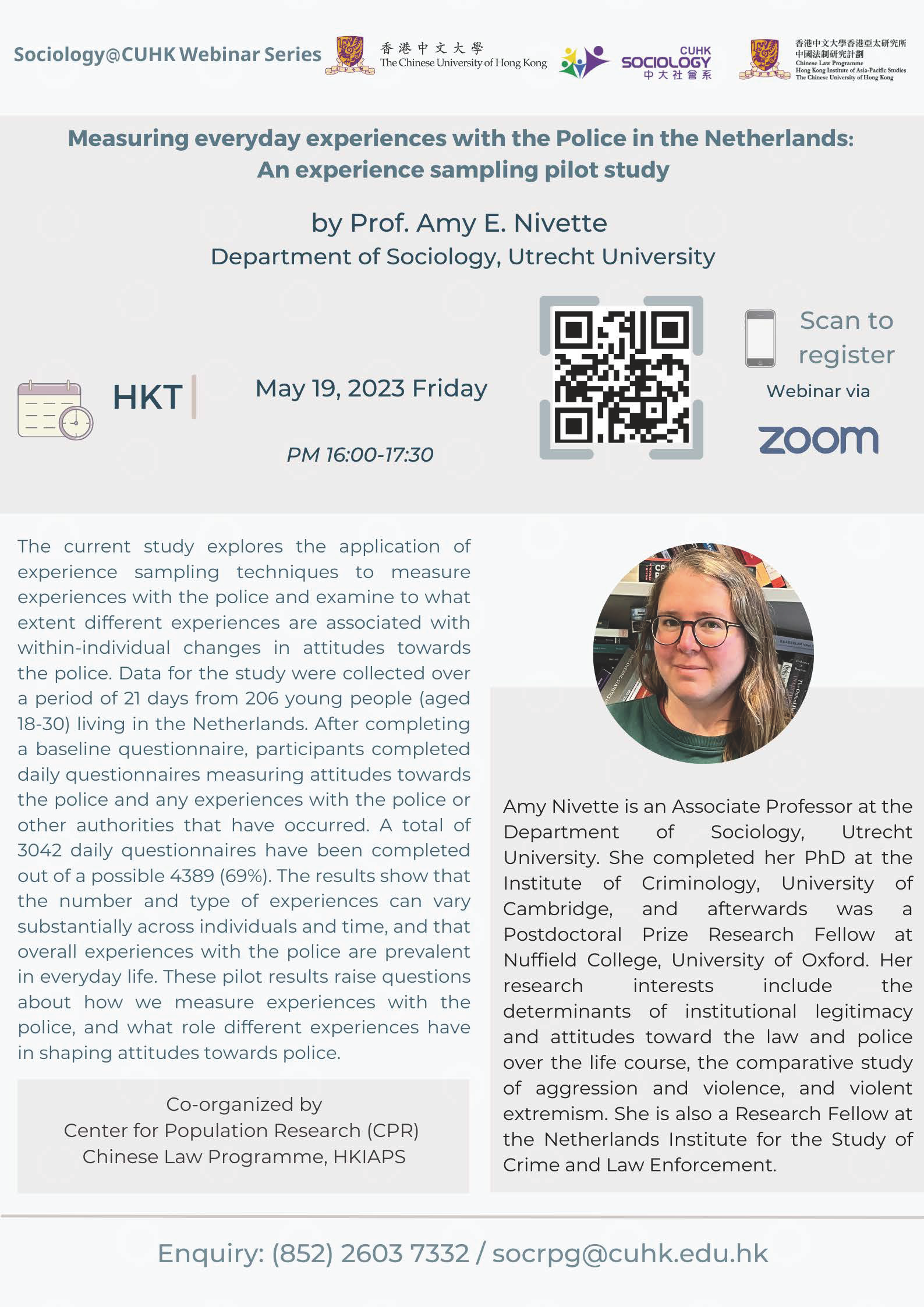 The current study explores the application of experience sampling techniques to measure experiences with the police and examine to what extent different experiences are associated with within-individual changes in attitudes towards the police.
Data for the study were collected over a period of 21 days from 206 young people (aged 18–30) living in the Netherlands.
After completing a baseline questionnaire,
participants filled in daily questionnaires measuring their attitudes towards the police and any experiences that they had with the police or other authorities.
A total of 3,042 daily questionnaires out of a possible 4,389 (69%) were completed.
The results show that the number and types of experiences can vary substantially across individuals and time,
and that overall experiences with the police are prevalent in everyday life.
These pilot results raise questions about how we measure experiences with the police,
and what role different experiences have in shaping attitudes towards the police.
The current study explores the application of experience sampling techniques to measure experiences with the police and examine to what extent different experiences are associated with within-individual changes in attitudes towards the police.
Data for the study were collected over a period of 21 days from 206 young people (aged 18–30) living in the Netherlands.
After completing a baseline questionnaire,
participants filled in daily questionnaires measuring their attitudes towards the police and any experiences that they had with the police or other authorities.
A total of 3,042 daily questionnaires out of a possible 4,389 (69%) were completed.
The results show that the number and types of experiences can vary substantially across individuals and time,
and that overall experiences with the police are prevalent in everyday life.
These pilot results raise questions about how we measure experiences with the police,
and what role different experiences have in shaping attitudes towards the police.
|
|
|
Speaker
Dr Long Cheng |
Assistant Professor, School of Law, Shantong University |
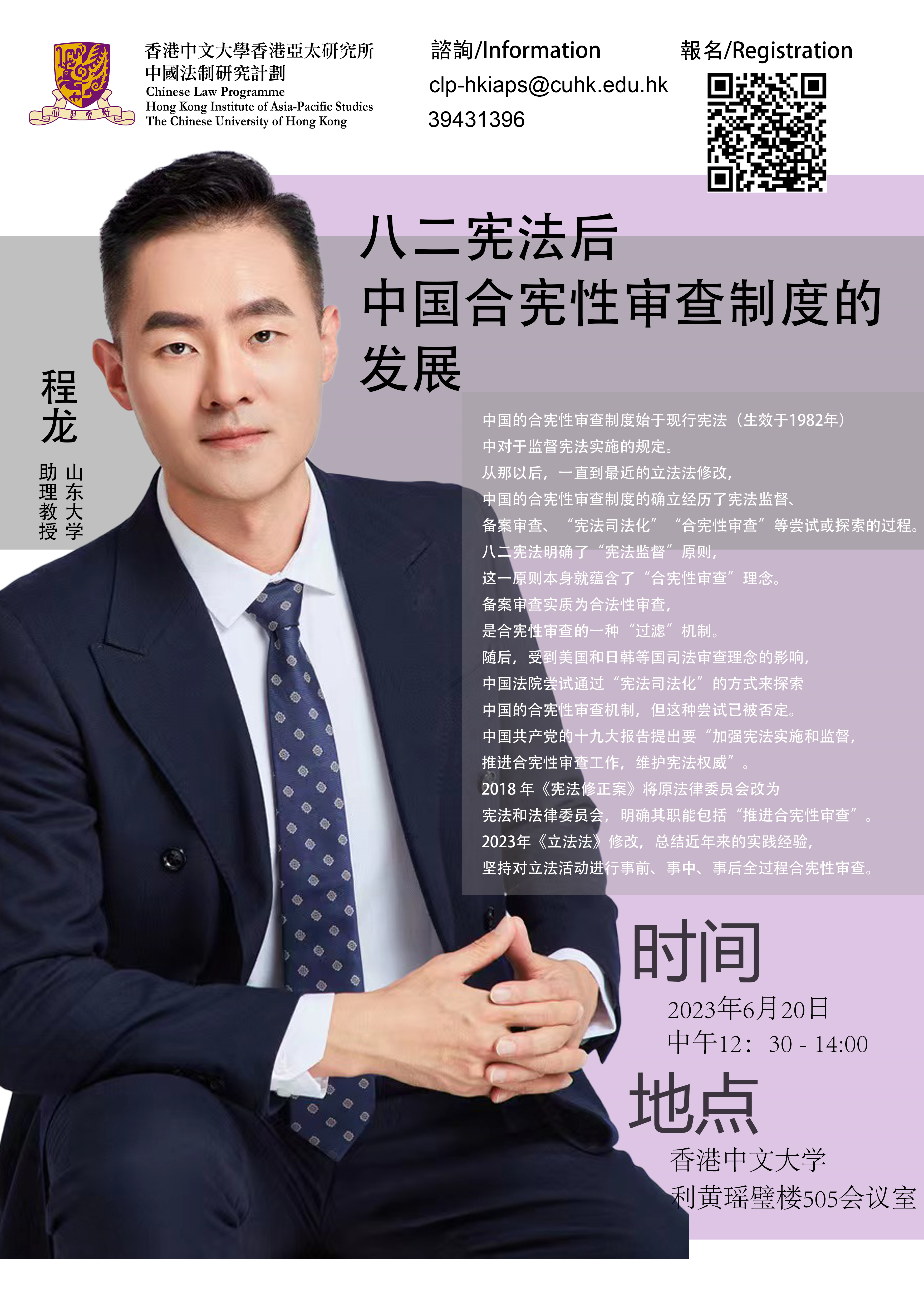 中國的合憲性審查制度始於現行憲法(生效於1982年)中對於監督憲法實施的規定。
從那以後,一直到最近的立法法修改,中國的合憲性審查制度的確立經歷了憲法監督、備案審查、「憲法司法化」「合憲性審查」等嘗試或探索的過程。
八二憲法明確了「憲法監督」原則,這一原則本身就蘊含了「合憲性審查」理念。備案審查實質為合法性審查,是合憲性審查的一種「過濾」機制。
隨後,受到美國和日韓等國司法審查理念的影響,中國法院嘗試通過「憲法司法化」的方式來探索中國的合憲性審查機制,但這種嘗試已被否定。
中國共產黨的十九大報告提出要「加強憲法實施和監督,推進合憲性審查工作,維護憲法權威。」
2018 年《憲法修正案》將原法律委員會改為憲法和法律委員會,明確其職能包括「推進合憲性審查」。
2023年《立法法》修改,總結近年來的實踐經驗,堅持對立法活動進行事前、事中、事後全過程合憲性審查。
中國的合憲性審查制度始於現行憲法(生效於1982年)中對於監督憲法實施的規定。
從那以後,一直到最近的立法法修改,中國的合憲性審查制度的確立經歷了憲法監督、備案審查、「憲法司法化」「合憲性審查」等嘗試或探索的過程。
八二憲法明確了「憲法監督」原則,這一原則本身就蘊含了「合憲性審查」理念。備案審查實質為合法性審查,是合憲性審查的一種「過濾」機制。
隨後,受到美國和日韓等國司法審查理念的影響,中國法院嘗試通過「憲法司法化」的方式來探索中國的合憲性審查機制,但這種嘗試已被否定。
中國共產黨的十九大報告提出要「加強憲法實施和監督,推進合憲性審查工作,維護憲法權威。」
2018 年《憲法修正案》將原法律委員會改為憲法和法律委員會,明確其職能包括「推進合憲性審查」。
2023年《立法法》修改,總結近年來的實踐經驗,堅持對立法活動進行事前、事中、事後全過程合憲性審查。
|
|
|
Speaker
Prof. Chao Wang |
Professor, Faculty of Law, University of Macao |
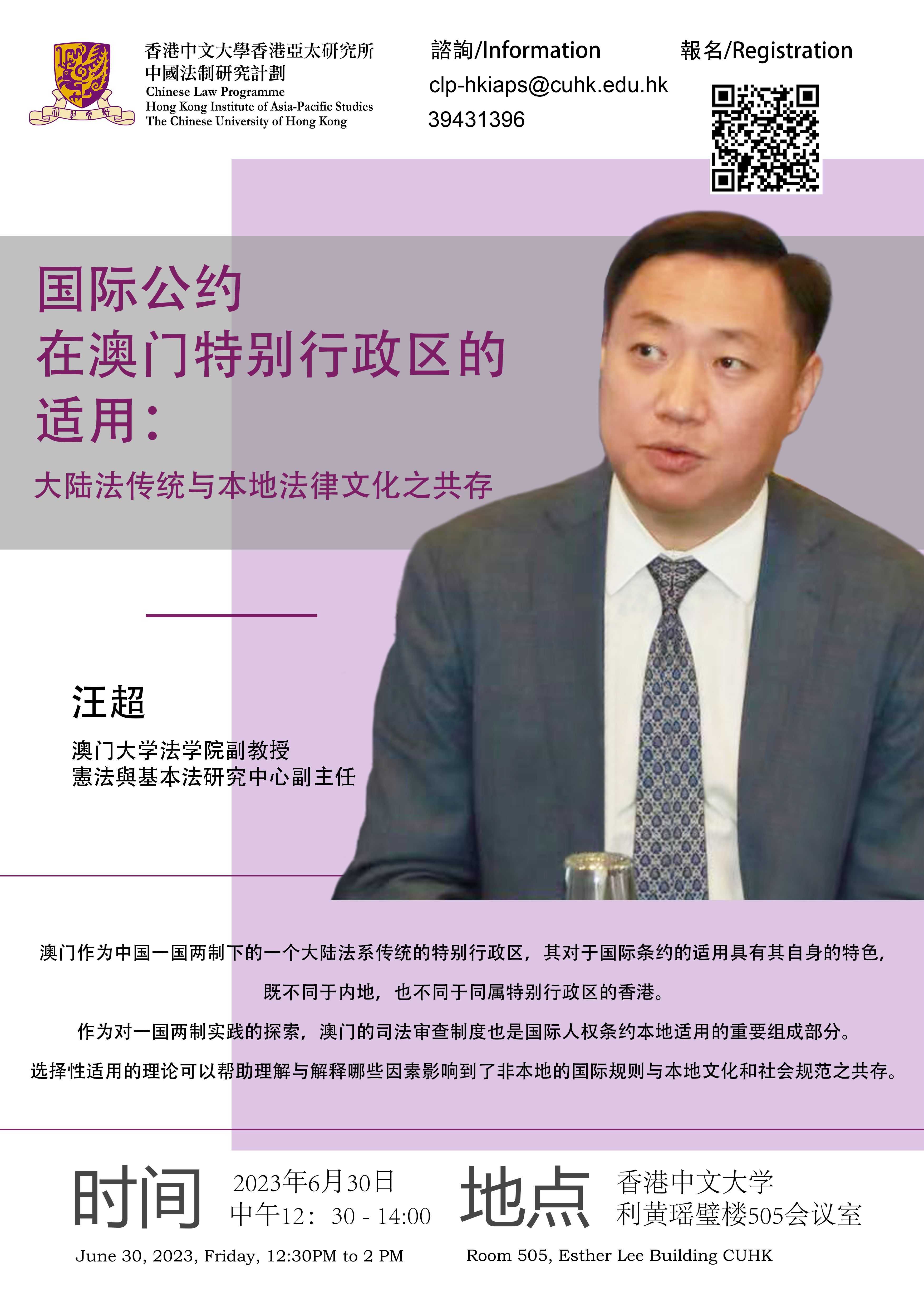 澳門作為中國一國兩制下的一個大陸法系傳統的特別行政區,其對於國際條約的適用具有其自身的特色,既不同於內地,也不同於同屬特別行政區的香港。
作為對一國兩制實踐的探索,澳門的司法審查制度也是國際人權條約本地適用的重要組成部分。
選擇性適用的理論可以幫助理解與解釋哪些因素影響到了非本地的國際規則與本地文化和社會規範之共存。
澳門作為中國一國兩制下的一個大陸法系傳統的特別行政區,其對於國際條約的適用具有其自身的特色,既不同於內地,也不同於同屬特別行政區的香港。
作為對一國兩制實踐的探索,澳門的司法審查制度也是國際人權條約本地適用的重要組成部分。
選擇性適用的理論可以幫助理解與解釋哪些因素影響到了非本地的國際規則與本地文化和社會規範之共存。
|
|
|
Digital Governance in China: Dispute Settlement and Stability Maintenance in the Digital Age
16:00–17:30 | 6 Sep 2023 | Room 422, Sino Building, CUHK |
|
|
Speaker
Prof. Jieren Hu |
Professor, Law School, Zhejiang University City College |
|
Co-organizer
Department of Sociology, CUHK |
|
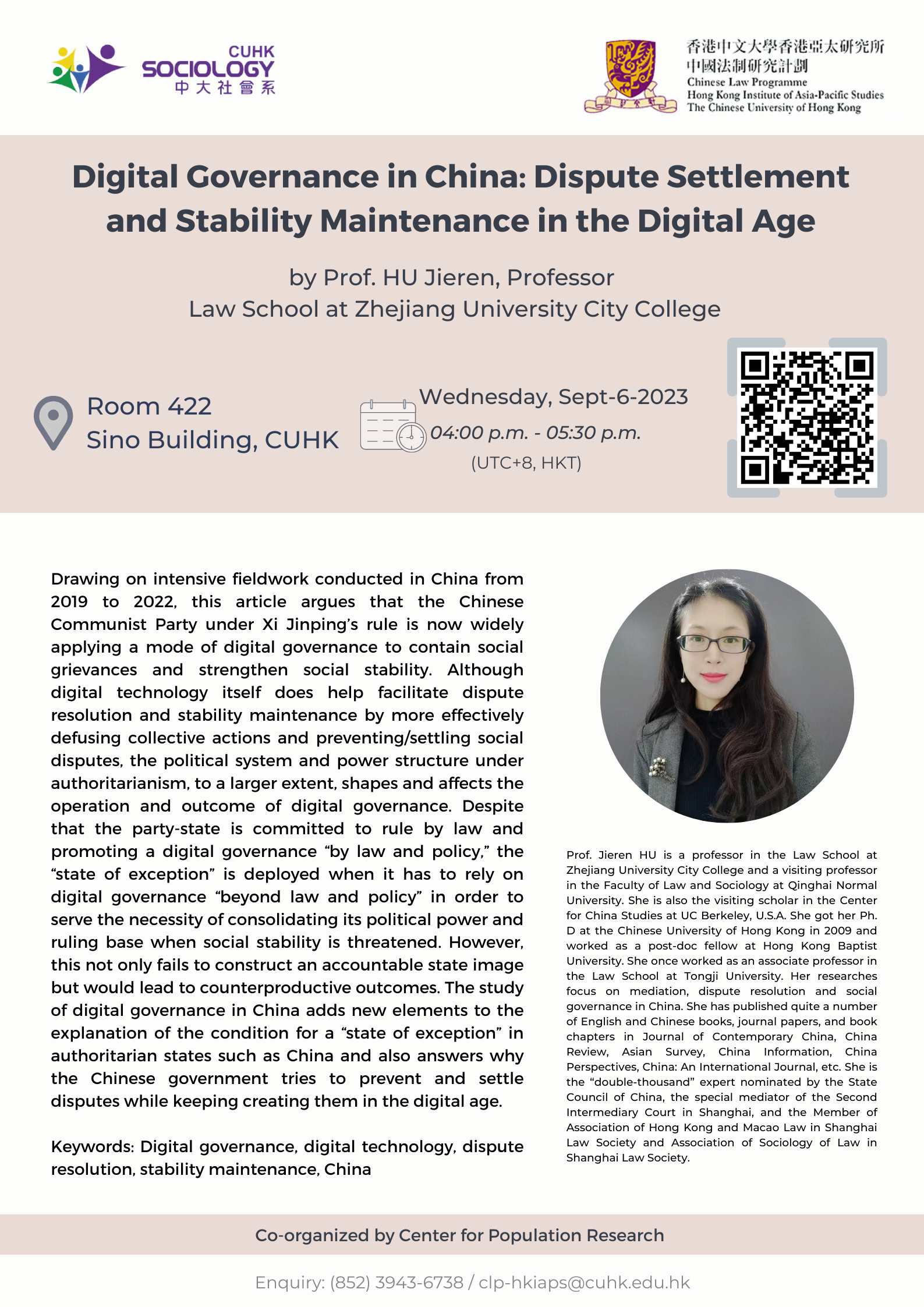 Drawing on intensive fieldwork conducted in China from 2019 to 2022,
this seminar argues that the Chinese Communist Party under Xi Jinping’s rule is now widely applying a mode of digital governance to contain social grievances and strengthen social stability.
Although digital technology itself does facilitate the resolution of disputes and maintenance of stability by more effectively defusing collective actions and preventing/settling social disputes,
to a larger extent the political system and power structure under authoritarianism shapes and affects the operation and outcome of digital governance.
Although the party-state is committed to rule by law and is promoting digital governance “by law and policy”,
a “state of exception” is deployed when it has to rely on digital governance “beyond law and policy” to consolidate its political power and ruling base when social stability is threatened.
However, this approach has not only led to a failure to construct the image of an accountable state but will lead to counterproductive outcomes.
Drawing on intensive fieldwork conducted in China from 2019 to 2022,
this seminar argues that the Chinese Communist Party under Xi Jinping’s rule is now widely applying a mode of digital governance to contain social grievances and strengthen social stability.
Although digital technology itself does facilitate the resolution of disputes and maintenance of stability by more effectively defusing collective actions and preventing/settling social disputes,
to a larger extent the political system and power structure under authoritarianism shapes and affects the operation and outcome of digital governance.
Although the party-state is committed to rule by law and is promoting digital governance “by law and policy”,
a “state of exception” is deployed when it has to rely on digital governance “beyond law and policy” to consolidate its political power and ruling base when social stability is threatened.
However, this approach has not only led to a failure to construct the image of an accountable state but will lead to counterproductive outcomes.
|
|
|
Policy Research @ HKIAPS
Seminar on “Gender Perspectives in Urban Planning: The Case of Barcelona” 10:00–11:15 (GMT+8) | 18 July 2023 | Room 505, 5/F, Esther Lee Building, CUHK |
|
|
Speaker
Prof. Sylvia Y. He |
Associate Professor, Department of Geography and Resource Management, CUHK |
|
Moderator
Prof. Fanny M. Cheung |
Honorary Senior Advisor, HKIAPS & Faculty of Social Science, CUHK |
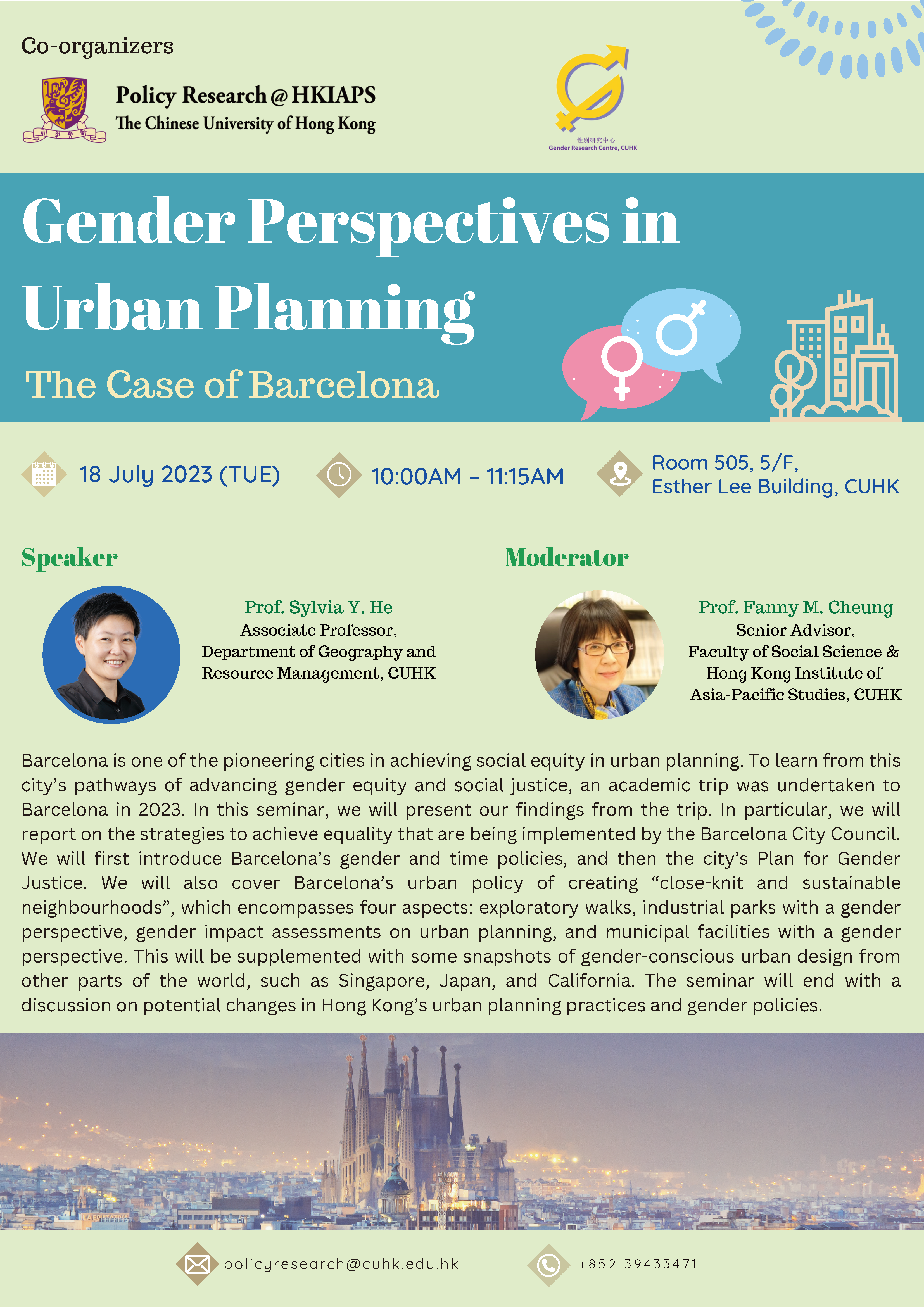 In this seminar, Prof. He and Prof. Cheung shared their findings from the visit.
In particular, they reported on the strategies to achieve equality that are being implemented by the Barcelona City Council.
They first introduced Barcelona’s gender and time policies, and then the city’s Plan for Gender Justice.
They also examined Barcelona’s urban policy of creating “close-knit and sustainable neighbourhoods”.
The discussion was supplemented with some snapshots of gender-conscious urban designs from other parts of the world,
such as Singapore, Japan, and California.
At the end of the seminar, potential changes in Hong Kong’s urban planning practices and gender policies were discussed.
In this seminar, Prof. He and Prof. Cheung shared their findings from the visit.
In particular, they reported on the strategies to achieve equality that are being implemented by the Barcelona City Council.
They first introduced Barcelona’s gender and time policies, and then the city’s Plan for Gender Justice.
They also examined Barcelona’s urban policy of creating “close-knit and sustainable neighbourhoods”.
The discussion was supplemented with some snapshots of gender-conscious urban designs from other parts of the world,
such as Singapore, Japan, and California.
At the end of the seminar, potential changes in Hong Kong’s urban planning practices and gender policies were discussed.
|
|

